


























For some time now, the way of the world has been to exclude others. Making others feel excluded while we're part of an exclusive "club" generally makes us feel good, powerful and special. Enjoying privileges reserved only for those worthy enough to belong to this group has an appeal to the ego, that is almost irresistible. This is by no means a Nigerian thing or an African thing, it's a human thing. Some societies have merely advanced to a level where this primordial inclination has become largely subsumed by elevating the notion of the common good. It may be worthy to note that feeling on the outside, out of the loop, that we don't belong, or that we're not relevant and somehow inferior, is a major cause of mental illnesses that has become so prevalent globally. The interesting thing is that by tradition, Africans have always been communal people, where everybody is included and everyone matters. We were in many ways more democratic in our style of governance and in the way we conducted our daily lives than we are now, as we continue to practice the mode of democracy foisted on us. Back then, important decisions were often taken collectively, involving all members of the community and not just a select group or a privileged few
The African ethos of yesteryear was not too different to that of some countries of the Orient today, such as Japan and South Korea, where the interest of the society is placed before the interest of the individual. It's no wonder the source of the adage, "it takes the village to train the child" can be found in Africa. This same disposition proved invaluable in helping the people of these Oriental countries toe the lines dictated by their leaders when it came to containing the Coronavirus outbreaks a few years back. This can be juxtaposed to the situation in the West where long held democratic ideals made it difficult for citizens to obey government directives and stem their natural urge to resist.
The story of The Abolarin College in the ancient town of Oke-Ila Orangun, Osun State, founded and funded by Oba Dokun Abolarin, is a truly inspiring one which epitomizes a fundamental aspect of godliness. I believe it would be helpful for us to understand that godliness goes beyond just adhering to fasts when called and attending all church programs but instead can be defined as conducting one's life in a way in which God would readily agree, mirrors His character
Abolarin College was established with one purpose in mind. To provide free qualitative education to indigent children,
all because the man involved refuses to accept this should remain the exclusive preserve of the well-to-do. And when I say free, I really do mean free, as the school provides everything, including school uniforms, school bags, writing materials, feeding, bed linen and anything else you can think of, absolutely free for its one hundred or so pupils, and making no demand of parents, most of whom can barely keep head above water. As a further demonstration of his large heartedness and disposition to include rather than exclude, admission is not limited to his subjects only. The pupils come from all over the country. However, if the child is not conversant with the Yoruba language, he or she must learn it, in addition to English and French, because these are the languages alternately used to conduct their school assemblies. One thing I find fascinating though is Kabiyesi's humility, uncommon in this part of the world, by regularly putting aside his royal robe and adorning the teacher's garb, as he teaches his pupils too. Money cannot buy the invaluable lessons this simple gesture imprints on the impressionable minds of these children. To lead is to serve and ultimately, lead us to lead. This is certainly one king who recognizes the motivational power inherent in leading from the front. Reminiscent of the Japanese educational philosophy of raising leaders by inculcating this spirit of service in pupils, Kabiyesi's pupils too must carry out daily chores for the benefit of all. For example, pupils take it in turn to help the cooks in the kitchen to prepare school meals and just as the female pupils braid each other's hair, it is the duty of the boys to cut each other's hair too. And before your imagination gets the better of you and you begin to wonder how squalid an environment the school premises must be because it's free, let me put you straight. This is a beautifully built institution powered by two large generators, donated brand new by an organization which keyed into this noble vision. The children are always neatly attired in their comely uniform and all pupils are provided with their own personal computers, in addition to the provision of many other modern day facilities, required to provide a conducive
There are many ways in which one can define character. It can be defined as possessing the moral antenna to first seek out and to thereafter attach appropriate importance to the right values. It can also be described as having the moral strength to abide by these values even when it may not be convenient to do so. There are times when it may even be detrimental to one's personal interest. In my opinion, character is also evident when one sees the big picture and pursues its fulfilment, placing this over and above the gratification of serving one's personal interest. This is an attribute sacrosanct to nation building and it is one, Kabiyesi is endeavouring to inculcate in all of his pupils. What better way is there to do this than to lead by example.
I believe it was Mother Theresa who once said, "We ourselves feel that what we are doing is just a drop in the ocean. But if that drop was not in the ocean, I think the ocean would be less because of that missing drop. I do not agree with the big way of doing things." In other words, we don't need to wait until we're able to perform the grandest gestures because many of us may never find ourselves empowered enough to do so. We can however do what we're able, in our little corner. Unknown to most people, that's indeed how the world changes; doing the little that you can and not leaving it to the other
In a country where we have far more people living in poverty than those who don't, that there must be many brilliant children falling through the cracks due to privation, would be a fairly safe conclusion to reach. Kabiyesi and all those led to support him, in alignment with the Japanese ethos which says "disadvantage is really seen as a collective responsibility" may never get to fully appreciate the impact their actions are having, not just in the lives of these children, but in the lives of a whole new generation. Just because they care
Oladapo Akande, a weekly newspaper columnist for several years, is a University of Surrey graduate with a Masters in Professional Ethics. An alumnus of the Institute for National Transformation and author of two books: The Last Flight and Shifting Anchors LinkedIn: Oladapo Akande
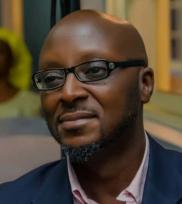
EDUTIMES AFRICA IS A PRODUCT OF
connecting education & people
PURPOSE
To strengthen the bedrock of Africaʼs education landscape so that Africa may thrive as a continent
VISION
To be the most reliable, inclusive and trusted educational publication in Africa.
VALUES
Achievement, Balance, Collaboration, Development, Enthusiasm.
Adebiyi Oke - Founder / Publisher
Oladapo Akande - Chief Executive Officer / Editor-in-Chief
Kammonke Abam - Co-Founder
Ejikeme Kenneth - Creative and Technology Lead
Aderinsola Kola-Adepoyigi - Industry Research Analyst
Emem Opashi - International Bureau Chief
Contact
Address: No. 43, 441 Road, 4th Avenue, Citec Villas, Gwarinpa, Abuja, Nigeria.
Phone: +234 (0)805 615 7012
Whatsapp: +234 (0)802 309 6234
Email: hello@edutimesafrica.com
Website: wwwedutimesafrica.com
COVER PAGE PHOTO REFERENCE || www.adeanet.org/en/
EDITOR’S COMMENT
Just Because They Care
THE ENTREPRENEURIAL YOUTH Reprogramming your money self-image for success
GOOD SCHOOLS GUIDE 25 of the Best Schools in ABUJA
EDUCATION NEWS IN AFRICA Three ABUAD students for exchange programme at King’s College, London
70% of teachers in South West private schools unqualified –TRCN
POLICY
Roadmap to Normal... Or Almost Normal
Interview with Mr Chris Uwaje (The Oracle)
A YOUTH'S PERSPECTIVE
A Letter to Mum
Heroes Without Capes
HEALTH LINE
Mental Health Challenges among students in Higher Institutions of learning
How colleges can learn from the peer support movement
TEACHER'S DEVELOPMENT
3 Ways educators can build a personal Brand
COVER STORY Is this smart school the future of public education in Africa?
INSPIRATION
How Education Made Me
EARLY YEARS
Developmental Milestones in the Early Years
CAREER COUNSELING
How should one go about building focused and healthy career goals and pursuing them?
SCHOLARSHIPS OFFERS
Scholarships for African students to study abroad
SPORTS NEWS
Nigeria: Oliseh predicts a bright future for Osimhen in the Premier League.
NBA: How Joel Embiid managed to become MVP 2023
ACROSS THE GLOBE
To build inclusive classrooms, let young people with intellectual disabilities take the lead
DID YOU KNOW?
12 Interesting Facts About Education Around The World They Don’t Teach You In School
INNOVATION IN EDUCATION Toolkit iSkills: Skilling Youth for Employment Opportunities in Africa
EDTECH NEWS
How Injini is Serving as a Launchpad for African EdTech Startups
CcHUB is launching an ed-tech accelerator for African startups with $15 million in funding
PERSONAL DEVELOPMENT School Metamorphosis
GUEST WRITER'S COMMENT
How is your(Internal and External) Listening Shaping your ‘T’?
Education is a human right with immense power to transform
“
Success is a series of small actions and habits, done consistently ‘We can become whatever we decide to become, at any time. It’s our God given right and ONLY human beings have this attribute’.
Our wealth self-image has been formed over time by our parents and the environment we come from, but reprogramming is possible. This is what the Rich do regularly, to keep getting wealthier and wealthier and to hold on to their money too. It takes a bit of time and effort. This article is a continuation of the last one in our previous edition and I will give some tools and tips for us to use in taking action, to improve our thinking and success
How can we get wealthy, especially if we have a poor wealth mindset?
For us to begin our journey on the road to wealth, we must begin to ask some pertinent questions of ourselves that will lead us to examine our money thought patterns and habits. We must start listening to our words, to find and expose our deep money habits and uncover our current wealth self-image levels, then we can begin to reprogram them, if we find that they are not in alignment with the future person we would like to be.
1. First, have the awareness that our image is at a certain level and we genuinely want to have more abundance in our lives. It must be genuine for us to be consistent with the efforts required.
2. Watch the words we use about ourselves when it comes to money
3. Stop saying things like “I’m always broke” “I don’t want too much money, I just want enough”, Rich people are wicked”, “Money is the root of all evil”, “etc. Stop saying these things, they reinforce a poor person’s beliefs and selfimage in you and will work subconsciously against you when you have wealth opportunities
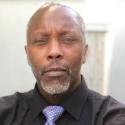
4. Begin to believe that you are blessed and can be rich, that God made a world
of abundance and wealth is possible for anyone, if acquired the right way.
5. When you catch yourself being negative about wealth building, stop those thoughts immediately and instead say to yourself, I can do it, I have all the resources to live a life that’s full of abundance
6. Take things to the next level and begin to read books about wealth, articles about wealth etc. Spend time watching YouTube videos about how people create and handle wealth, follow the right people on social media who give genuine tips about wealth and begin to see what a rich lifestyle is about.
7. Create an image of yourself living your ideal life and often revisit this image in your mind and try to generate and feel the emotions that you would feel, when you have achieved that level of success
The more you replay this image in your mind with emotions, the faster your mind will reset your internal wealth selfimage and slowly begin to build it up
8. Begin to practice what wealthy people do, start saving and looking around for how to add value where you work or in your business and in life. When you get more confident about money, you will begin to see and take more opportunities that come your way to make you richer
BONUS TIP: Wealth image mind hack: The mind thinks in pictures and not words, so take advantage of this and generate pictures of the types of things you want, then hold these images in the mind frequently, to rapidly change your money image levels. Do not think about limitations and things you do not want, build the habit of only thinking about the things you want, and your life will begin to move in that direction. You can use these questions to deepen the process and generate images and thoughts that will help:
How much would you like to have sitting in your bank account? Imagine it.
How much will you like to earn yearly?
What currency? Anything’s possible and you must believe this
Where would you like to live if you had no restrictions on money?
What car would you like to own and drive?
Where would you go on holidays?
What will you do with your time when
you have money? What would you do to help humanity if you had all the money you wanted? Etc.
These are the sort of questions we need to begin to ask ourselves to generate images as answers, so that we can begin to feed our minds a better idea of what we would like it to hold about us and do for us. The more we create images of abundance and wealth, the quicker the mind will accept these new ideas and adjust its mental model-image and our actions will move towards achieving the wealth we see
The average Nigerian learns about money by accident, mostly by observing their parent’s thoughts and actions while still young. We become accustomed to learning by osmosis, what we see others do. Society as well plays a big part in programming us with ideas about what’s possible and what’s not. These attitudes once formed in our subconscious minds become the real baseline we ALWAYS default to later in life. No one can consistently act out of alignment with their major beliefs, which limits us, but which can also help work for us once we become self-aware

Once we become aware of what really happens in the mind about our beliefs, we are on the way to becoming unstoppable towards a much better life in general.
Begin today, it’s you versus you and it's possible.
Max is a serial entrepreneur, a mentor, founder and CEO of Millennium Apartments and Studios, Lekki, Lagos He is the Executive Director of Radiance Schools and currently the President of Fate Foundation's Alumni Association EXCO
Instagram: @MaxMotiv8
Linkedin: //ng.linkedin.com/in/maxnonso-menkiti-entrepreneur
Living in the capital
of Africa’s most populous country has its perks, like good education, solid infrastructure and most important of all, proximity to the country’s most influential decision makers. Parents would give an arm and a leg to ensure that their children have access to quality education which is why in continuation of our Good Schools Guide series, we have compiled a list containing 25 of the top Schools in Abuja for you. It is by no means an exhaustive list therefore there are several other top schools not captured here
There are several reasons why private schools are so highly sought after by many Nigerian parents. Some of these reasons include safety, smaller class sizes/more individualized student attention, a wide range of extracurricular activities and modern facilities which have been proven to enhance learning.
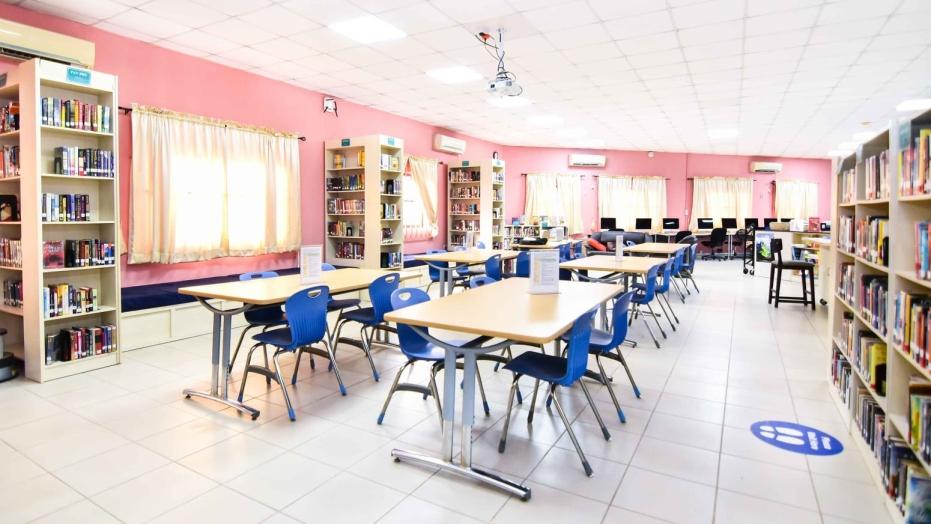
Please note that the under-listed schools are listed in no particular order.
1) Loyola Jesuit College (LJC): ADDRESS: Gidan Mangoro, Karu-Karshi Road, Abuja, Federal Capital Territory, Nigeria
PHONE NO: (+234)
08054909665 | 08114681636
WEBSITE: https://www.loyolajesuit.org
2) American International School of Abuja (AISA):
ADDRESS: Plot 346 Cadastral Zone B 02 Durumi District
Abuja, Nigeria

PHONE NO: +234 703 2153 798
WEBSITE: https://www.aisabuja.org
3) Creative Learning International School:
ADDRESS: Plot No. 18 Oladipo Diya St, Gudu 900110, Abuja, Federal Capital Territory
PHONE NO: 0817 363 1079
4) Granny Murray Schools
ADDRESS: Gwarinpa Estate 900108, Abuja, Federal Capital Territory
PHONE No. 09 291 6467
WEBSITE: https://grannymurray.com
5) Ladela Schools
ADDRESS: Plot 100, Wumba District, Apo, Abuja
PHONE No. 08168974886 | 07039065952
EMAIL:info.ladelaschool@gm ail.com
6) Nigerian Turkish
International College
ADDRESS: Ahmadu Bello Way, by Kashim Ibrahim Way, Wuse 2
PHONE NO: 080519080 30
WEBSITE: https://ntic.edu.ng
7) Regent College Abuja:
ADDRESS: 1 Euphrates Cres, Maitama, Abuja
PHONE NO: 0705 565 1431
WEBSITE : www.regentschoolabuja.com
8) Premier International School:�
ADDRESS: 26, N’Djamena Crescent, Wuse 2, Abuja FCT Nigeria
PHONE NO: 0806 978 1274, 0704 151 2778
WEBSITE: http://www.premierinternatio nalschool.org
9) Faith Academy, Abuja
ADDRESS: KM 26 Abuja-
Keffi Road Goshen City New Karu, Nasarawa.
PHONE No. 08169172191
WEBSITE: www.faithacademy.ca
10) Lead British International School
ADDRESS: Aliyu Mustdafa Street, (Opp. Trafford Hotel ), Off Wole Soyinka Avenue.( 2nd Avenue ), Gwarinpa, P.M.B 5334, Wuse, Abuja, Nigeria.
PHONE NO: +234 8172313430, +234 8099960007,
WEBSITE : http://www.lbis.org/
Street, Jabi District, Abuja FCT Nigeria
PHONE NO: 0807 656 4712
WEBSITE ADDRESS : http://giss.com.ng/contact-us/
15) Solid Rock International School
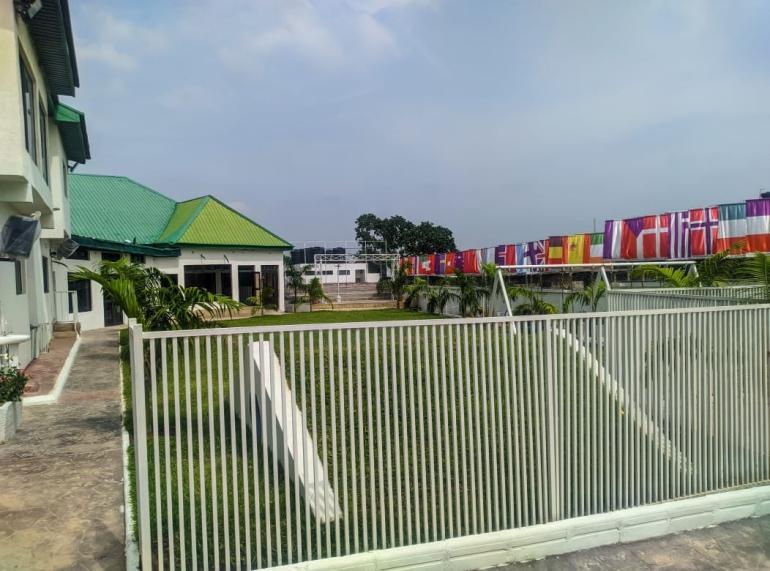
ADDRESS: Plot CM28, Gado Nasko Road, off Airport Road, Gado, Abuja FCT Nigeria
PHONE NO: 0803 331 6094
WEBSITE:www.srisabuja.sch.n g
16) Oasis International School
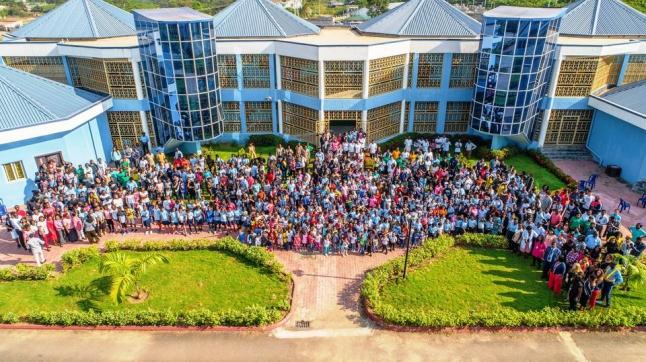
ADDRESS: Plot ED, 2/6
Wuse 904101, Abuja, Federal Capital Territory
PHONE NO: 08033113304
20) Creative kids academy Kubwa Abuja
PHONE NO: 0803 072 0792
21) Star-Rite International School
PHYSICAL ADDRESS: Plot 1036, Aderemi Adesoji Street, Off Jereton Mariere Road, After Zone E, Apo Legislative Quarters, Gudu District, Abuja (FCT), Nigeria
PHONE NO: +2348106334006
WEBSITE : http://www.startriteschools.co m.ng
22) Grace Garden International School
PHYSICAL ADDRESS: 21, Euphrates Street, Maitama, Abuja, Nigeria
PHONE NO: +234-8034503632
WEBSITE : http://www.gracegardenschool s.org
23) Cherryfield College
24) Great Heights Academy
ADDRESS: Plot 383 Cadastral Zone B9, Off Water Parks Road, Kado District, Abuja
PHONE NO: +2347037942856, +2348034443856
EMAIL : greatheightsacademy@yahoo.co m
WEBSITE : http://greatheightsacademy.org ng
25) International Community School
ADDRESS: Plot 75, Off Citec Road, Dakibiyu, Abuja
PHONE No: +234 803 349 8741 | +234 815 705 8707
Abuja by default is the most expensive city in Nigeria which automatically makes everything there expensive, including education.
11) Glisten International Academy
ADDRESS: Plot 1457
Cadastral Zone B8 Jahi District
Abuja
PHONE NO: 0806 907 9371, 0803 289 9111
WEBSITE: wee.glisteninternationalacademy .com
12) Africa International College
ADDRESS: Kaura District, Opposite Suncity & State, Kaura, Abuja, FCT Nigeria
PHONE NO: 0706 603 8866, 0803 470 4261
WEBSITE: http://www.africainternationalc ollegeabuja.com
13) The Centagon International School
ADDRESS: 29/31, Mississippi Street, Maitama – Abuja, Nigeria
PHONE NO: +234-9-2903397
EMAIL ADDRESS: registrar@tcisabuja.ng
WEBSITE : http://tcisabuja.ng
14) Global International College
ADDRESS: 66, Ebitu Ukiwe
Cadastral Zone 0707, Sabon Lugbe, Abuja FCT Nigeria
PHONE NO NO: 0706 215 7663, 09 291 8213
WEBSITE: http://oasisinternationalschool s.com/
17) Parliament International School
ADDRESS: Plot No. 868, Jonathan Mariere Street, Gudu, Abuja FCT Nigeria
PHONE NO: 0701 683 9897
WEBSITE : http://www.parliam entinternationalscho ols.com/
18) Funtaj International School Limited
ADDRESS: Asokoro, Abuja
PHONE NO: 07057928544
WEBSITE
ADDRESS: funtajschool.com
19) Olumawu School
ADDRESS: 92
Adetokunbo
Ademola Cres,
ADDRESS: Plot ct19, Jikwoyi behind phase 1 primary school, Along Nyanya Karshi road, Jikwoyi Abuja
PHONE NO: +2348063200284
EMAIL : info@cherryfieldcollege.com
WEBSITE : http://cherryfieldcollege.com/i ndex.htm
There we have it. 25 of the best schools in Abuja. This is the second in our Good Schools series. Other school listings will follow, including Good Schools Guides for other African countries. The Abuja Good Schools Guide is a special project by Schoolings and EduTimes Africa. We do hope that our readers scouting for a good secondary school in Abuja will find it useful.
Three students of the Afe Babalola University, Ado-Ekiti (ABUAD), will proceed to King’s College, University of London, on a twoweek Students’ Exchange Summer School Programme.
The Registrar of the Teachers
Registration Council of Nigeria (TRCN) Prof. Josiah Ajiboye has declared that unqualified persons in the teaching profession are not teachers but cheaters
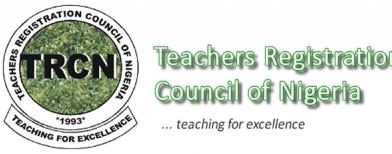
He added that they don’t only cheat the pupils/students but the system.
The TRCN boss spoke on Thursday in Abuja at the signing of the Memorandum of Understanding between the Council and INSTILL Education on bringing in new dynamics to the profession.
Ajiboye said contrary to several speculations about the South West and its teachers of private schools, 70 percent have been discovered not qualified.
Lamenting that 70 percent of the unqualified teachers lacked the prerequisites to be registered by the Council, the TRCN boss stated that a large number of teachers in Nigeria have never been exposed to training and have been using outdated
equipment for illustration.
He said: “A large number of teachers in private schools in Nigeria today are not qualified. We wanted to use a consultant to get revenue from teachers in private schools. When we carried out a survey, we observed that a reasonable amount of 70% of teachers in the South-West are not qualified as well.
“They are not registrable with the TRCN. So that is to tell you that there is a big gap. So you cannot call them teachers but cheaters You know that there’s a difference between teachers and cheaters. If you are not a teacher, you must be a cheater
“These people do not possess the requisite qualification to register them and so there’s a big gap. So we are looking into the future to fill up that gap like it’s done in South Africa.”
They are Rasheed Aro (400 Level Law); Lukman Awogbemi (300 Level Economics) and Temitope Oladokun (400 Level Nursing), who also has a Bachelors in Human Dietetics
This is coming barely six weeks after the trio of Boluwatife Akinoso, Odafe Angela Okparanyote and Moyinoluwa Omoyajowo – all 500 Level MBBS students of the university –travelled to the United States for Clinical posting under the Tripartite Partnership between ABUAD, Little-by-Little Foundation and Johns Hopkins Hospital.
Head of Corporate Affairs, ABUAD, Tunde Olofintila, said the students are the first set of beneficiaries of the Afe Babalola
African Centre for Transnational Education at the King’s College, University of London.
Vice Chancellor Prof. Elisabeta Olarinde, who presented the students to the Founder and Chancellor, Aare Afe Babalola, said the three students were the best during the rigorous screening
Aro scored 100 per cent, Oladokun (100 per cent) and Awogbemi scored 87 per cent.
Babalola, who congratulated the students, urged them to see their selection for the summer school as the beginning of better and greater things to come He added that if they worked harder, the sky would be their limit.
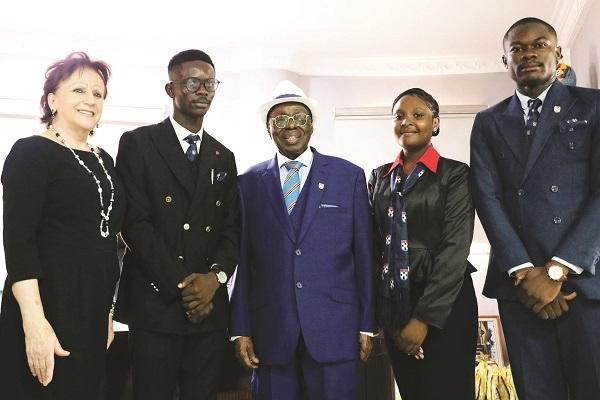
The ABUAD founder recently
donated 10 million Pounds to King’s College, University of London for the establishment of the Afe Babalola African Centre for Transnational Education (ABACOTE). The centre will enable young Africans to access education and opportunities which they would otherwise not be able to have Its vision is based on the power of education to empower and enable Africa’s talented young people to make meaningful contributions to their communities and the world.
Three ABUAD students for exchange programme at King’s College, London
70% of teachers in South West private schools unqualified – TRCN
lack of explicit in-person training as numeracy and reading skills because of the number of school days lost for their sample in Hungary
From my personal point of view as a maths teacher, I can attest to this being a parallel for those in primary and secondary schools too. When I would eventually meet my students in the classroom after the lockdown was lifted, I came to the conclusion that I achieved little to nothing during the months of online instruction particularly because we were starting a new school year in the wake of the lift – let's not even talk about the amount of work put into adjusting their minds to in-person learning from online learning.
Now that we have
found ourselves here, what can we do to get back on course? But before I try to answer this question the best way I can, let's deconstruct the upshot the pandemic left in its trail.
As expected, a lot of research has shed light on the growing effect of COVID-19 on learners all around the world; whether short-term or longterm effects but it is alarming to note that not many of these studies have focused on students ages 5 and below Given that these younglings will by this time only have acquired the adequate communicative abilities to request food and play and other things alike in between, what indicators are there to let policymakers know the needs they have when it comes to their learning, other than when said prescribed learning begins to show its effectiveness or noneffectiveness – which may be visible during or after this learning stage. When it comes to this aspect, they usually have no say in how they want to
learn until they begin to show their teachers if the learning was productive or counterproductive and this is largely due to the fact that their language for expressing intricate needs such as these, has not yet been developed.
In trying to fill the gap of little to no empirical research that zeroes in on monitoring the knowledge gap of students from kindergarten to the end of primary school, from a longitudinal perspective in the domains of mathematics, English and science, Gyöngyvér Molnár and Zoltán Hermann, authors of "Short- and longterm effects of COVID-related kindergarten and school closures on first- to eighthgrade students' school readiness skills and mathematics, reading and science learning, Learning and Instruction, Volume 83'', used pre-pandemic achievement data as benchmark indicators in their study and came to the denouement that students who started school in 2020 and 2021 were differently skilled on average than students who started pre-pandemic due to the
growth are beginning to take a new turn. However, the skills lost are still very much required for the future of work and we need to find ways to ensure that they are taught and learnt.
Because statistics are difficult to come by in Nigeria, we can make inferences from the survey conducted by Chen et al (March 2021) in the top OECD nations including China to give us an idea of what must have happened in our nation. Only a third of the respondents viewed online learning as nearly successful as in-person learning while two percent of those respondents from Japan thought it was equal to online learning, and the other ninetyeight percent thought it was the absolute worst. As classes continued online in these nations, teachers saw the efficiency of instruction decline. The same survey recorded that learning and instruction in private and wealthy schools were more effective as most of their students had access to technological facilities and were usually tech-savvy. I am sure by now you are beginning to get a clear picture of what happened in Nigeria as more than 39 million learners had their learning disrupted. In another twenty years or so from now, these individuals will represent a major part of the nation's labour force and in turn the nation's economic output. This is not to say that there weren't significant efforts made by policymakers in Nigeria like those in Edo and Ogun states And this is not also to be a prophet of doom as we can see that criteria for work and career
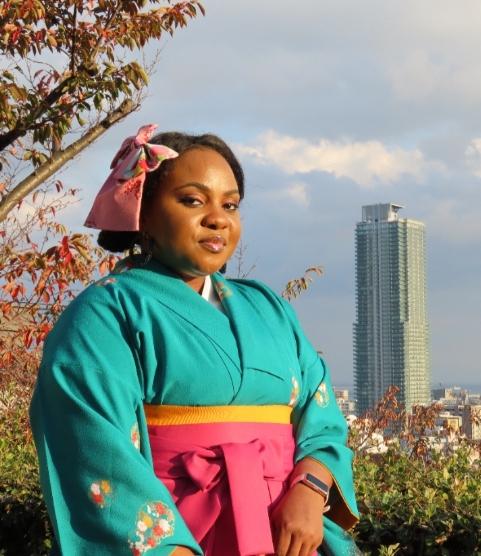
To move forward we must therefore come to the realization that how we used to learn before COVID is still as important and productive but with the agency of technology it can be more effective Thankfully, in Nigeria today, access to the internet has increased and is becoming a bit more affordable but might not be affordable on a large scale for our public primary and secondary schools, therefore, the tool for technology must fit into our context particularly because of the environment most of our learners live and grow in. Taking a cue from the 'OGUN DIGICLASS', more television and radio programs that cover reasoning, fluency, competence and understanding in mathematics, science and English should be funded by the Ministry of Education at both federal and state levels The feedback system from this program can also be a prototype for measuring the effectiveness of such programs
The Nigerian curriculum needs to be fully transmitted from paper to the walls of the classroom and then consolidated. While there has been a growing body calling for the entire overhaul of the nation's curriculum, it's imperative to critically look at what those who learnt with the curriculum are achieving all around the world and what needs to be added or removed to help our learners do better By consolidating our curriculum, we can expect that full recovery from learning loss can almost be achieved. Once educators and policymakers can through research determine which skills, knowledge and competencies should be set as priorities for each grade level, they can go ahead to ensure that materials and the time required are included in the dayto-day learning of students. A simple way to do this is, for example, by asking primary 5 students to get primary 4 textbooks and assign homework
from this textbook during the holidays or weekends. This will help as both diagnostic and consolidating measures
Policymakers should consider extending school days to increase the time spent on instruction so as to improve learning outcomes. In Kenya for example, the government announced a two-year accelerated crash program that adds a fourth term to the regular three-term school year. Mexico also planned extensions to the academic calendar which was announced by the Ministry of Public Education. We can find several policies across the world like this that can be adapted to fit our context.
Consequently, the government needs to up its funding game for educators and researchers. That's as succinctly put as it can be. Infrastructure, teachers and learning materials must be heavily invested in because these are usually easy motivators for teaching and learning. The government needs to help improve the skills and competencies of its teachers as there will be no recovery without professional development and support for teachers. Also, the need for data to adopt best practices in education is important. Independent researchers should be accommodated in order to help shed light on issues that require immediate attention from the government.
Adeyosola Nwangwu is a Mathematics Teacher with expertise in the British, American, and Nigerian curricula for junior and senior secondary schools and has worked with schools in Lagos and Abuja. She is a curriculum and policy enthusiast whose passion for learning about best practices to implement and improve education in Nigeria has led her to Japan. She recently graduated from the Teachers' Training program at the University of Tsukuba, Japan, where she conducted research on the mitigation of learning loss due to the pandemic and is looking forward to furthering her research on related issues, and was also the president of the Association of African Student(AASUT) at the university. She obtained her first degree in Educational Management from the University of Ibadan, Nigeria, and is a member of the Teachers Registration Council of Nigeria. She has worked with teams from South Africa, the UK, and Canada on curriculum mapping and teaching mathematics throughout the span of her teaching career. She is currently the lead teacher at thelessonteacher.com.ng, a private outfit that provides tutoring services for learners of Math, English, and the Sciences in Nigeria and beyond since 2016.
louiesek94@gmail.com
 By Mercy Ruth Amun
By Mercy Ruth Amun
Dear Mom,
It’s okay if I make a mistake. I would learn from it and grow from there. Yes, I know you love me and would hate to see me spend a second of my life in regret, but staying in your embrace and under your watchful gaze for too long may harm me. Because rather than growing a tough skin for the world out there, I’ll be cocooned in your own. I need to learn to walk, mom, so please let go of my hands and just watch me do it. I need to taste the bitter consequences of my actions, so please be prepared to watch me go through pain. I need to be the woman you would be bold enough to boast about. So allow me to bear the cross of my responsibilities
If I understand anything about the circle of life, it is that one cannot live a life void of mistakes. One can only learn from the mistakes of others, which would serve as a guide to help them get ahead in life. Your mistakes, mom, are the lessons you teach me now that you are old. I have to make mine to be able to teach something to my little offspring
Don’t get me wrong; I don’t deliberately want to make mistakes in life, but if I do, take a deep breath, say a word of prayer, and trust that I’ll be fine. Your little girl isn’t so little anymore; trust me, she can handle a few tosses of the wind. With your words ever ringing in my ears, trust that your years of training will never be forgotten. If you ever get scared, remember that the blood of a warrior that flows through your veins flows through mine too.
From yours always, Adanne.
My name is Amun Mercy Ruth. I am a dedicated, hardworking, and passiondriven young lady. I'm 20 years old and currently pursuing a degree in mass communication with a focus on public relations and advertising at Covenant University. In my spare time, you can catch me reading a book, editing audios on auditions or just polishing my voice-over skills. Professionally, I have amassed over 10 years of experience in poetic and creative writing. It's no wonder I have written over 40 poems and seven articles
Outside my field, I am currently venturing into the programming world with languages such as CSS and HTML. If you are interested in learning more about my work or would like to connect with me, I would love to hear from you! You can reach out to me at amunruth03@gmail.com or on Instagram at @r.u.t.hhhh
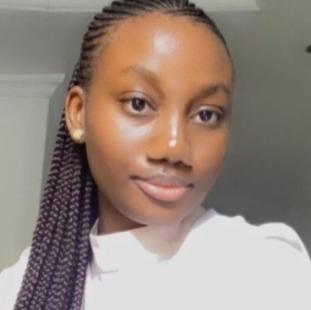
Mental health is man’s state of mental well-being that gives room of opportunity for humans to cope with life’s many stresses, realize their abilities, able to learn and work well, and contribute to human and community development. It is a determinant of how people handles stress, inter-personal relationships and decision-making
For many students in higher institutions of learning, this is quite a huge thing as it plays a major role in what they become during the course of their study and at the end of their learning journey, perhaps for some it could lead to a lifetime impact. They are in an environment where there is an opportunity for greater independence and freedom. Incidentally, they often do not remember that such freedom and independence comes with challenges (mild or severe), which could affect what they become in life
The long-term effects of their new found life of independence is huge on society because they are the generation that would eventually take over the management of same society in the near future. So, if their mental health is not appropriately taken care of today, tomorrow is likely to turn out red. According to Sarah Ricahrdson, the head of student services at the University of Derby, ’good mental health is vital for students. She reiterates that happy and healthy students are successful students.’ This is a good reason why higher institutions of learning must care so much about the mental health of their students, to attain quality and productive learning. The fact that the state of our mental health determines everything about our day-today living : our engagements, participations, conversations and involvements with other people, is a pointer to the need to ensure that mental health issues are a top priority for students in higher institutions of learning. It is like the unit of thoughts, feelings and decision making as humans, and since learning involves these, it is imperative that more should be done in order to make learning rewarding
In most Nigeria’s higher institutions of learning, students are not really enjoying the good mental health capacity due to reasons such as the followings:
Inability to access the needed resources to maximize learning opportunities
Change of environment (from a more restricted and monitored home front to a totally fee space of independence)
Increasing lack or inadequate access to needed learning resources
Unrealistic and unhealthy expectations placed on them by parents
Weak institutional support and
The government can support higher institutions of learning to make issues of mental health easier to deal with by putting in place supportive policies that would ensure prevention, management and other supportive services for students in higher institutions. Higher institutions of learning should be supported to ensure the followings, to appropriately reduce the incidents of mental health issues among students:
Regular sensitization and awareness activities on mental health for students
Introduction of compulsory course on mental health for all students, so that they can have basic knowledge and understanding on its causes, prevention, management etc
Introduction of 24/7 telephony and if possible one-on-one support services on mental health issues
Establishment of a mental health support group with membership cutting across the institution community (students, academic and non-academic staff etc)
Collaboration with a tertiary health institution, non-governmental organization, medical association or mental health professionals association where available
In conclusion, it is important to know that whatever become the mental health of today’s students in higher institutions of learning would go a long way to affect our collective tomorrow as a people
These and many more reasons puts them at a higher risk of going through mental health challenges and crisis. The fact that the students are less likely to seek help because they do not know how to nor aware of the symptoms of mental health challenges makes it even difficult for them to be supported. While few who are willing to be supported are in institution where that has a weak or no mental health support system.
The following steps are healthy and supportive for students having mental health challenges:
Do not be hard on yourself, remember that challenges are not meant to defeat us, but to the defeated
Never let the thought of ‘I’m in trouble’ be a part of you, you can only be in trouble if you watch on and do nothing
Take a bold step to seek help/inform someone/ take a walk regularly or participate in sporting activities that improves physical fitness
Trace the cause(s) of the issue by breaking it down into specific causes, to enable you deal with it from the roots
Eat balanced diet and do away with alcohol and drug abuse and misuse
Do not fear, we all go through it, so you are not alone. You can only be alone if you do not act fast and right.
Visit the hospital to see a Doctor if need be (it is very important)
Fatoki Taiye Timmy is an innovative social development and human rights specialist with 15+ years experience in the development sector with a focus on the West Africa Region. Strong track record of delivering technical support in educational programme, highly competent in capacity development, institutional reforms, child rights and protection, youth development, and gender. High achiever with goalbound, time-conscious, strategic planning and inter-personal relation abilities. Presented a number of papers including a paper on promoting the girl child’s access to education which was presented at the 2008 Bill and Melinda Gate International Youth Conference, and ‘Youth Shadow Report on HIV/AIDS in Nigeria’, a United Nations General Assembly (UNGASS) 2008 Shadow Report with four other people
Skilled in project management, gender, child protection, youth development, community engagement, policy development ,advocacy & lobbying, capacity,organizational development and mental health crisis management. He is a board member of three NGOs in Nigeria, two of which he is the chairman -Aspilos Foundation and Value Reorientation for Community Enhancement (VARCE)..
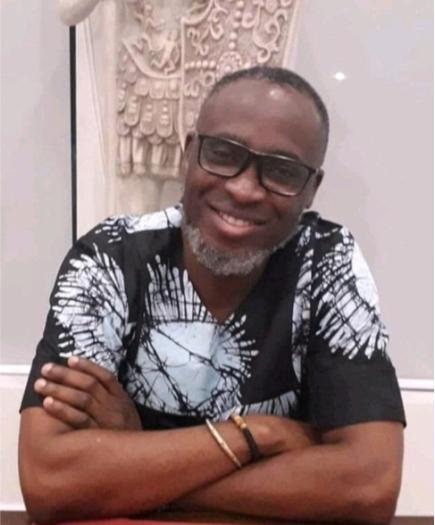
And how well will you say the Nigerian school curriculum is doing to produce individuals who will either keep up with the new times or will themselves create those entirely new occupations sir?
One of the biggest questions facing schools right now is how to prepare students for the future labor market currently being restructured by emerging technologies such as Quantum computing and artificial intelligence, etc.? In a new report from the Economist Intelligence Unit, a research group affiliated with the weekly magazine, many K-12 educators said ‘they agree on the need and want to retool their teaching to match future workforce needs but feel limited by meager budgets and inadequate access to technology’. But there are also many other hidden and unaddressed reasons. Available records show that without changes in education, the future of work will leave more people behind the poverty line. Africa will need National STEM Policy and productive strategies for Upskilling Teachers, improving Communication and work messaging at all levels. Also, we need to retool and reequip our Education Infrastructure and teaching environment and tools with functional Laboratories if STEM Education must yield the quantum benefits to create wealth and sustainable knowledge value chain for our digital survivability. The future of work therefore will continue to challenge the world of learning which now witnesses tremendous change management requirements. Today, as we navigate deeper into the technology-driven ocean of the 21st century the art of learning will dictate the success of the 4th Industrial Revolution. For example, Future Schools may emerge in space very sooner than later. It simply means that more Nigerians and Africans will travel overseas to the UK, USA, Germany, Asia, and inevitably to Mars etc., to study and acquire new knowledge in the compressed technology frontier
Then there were Fintechs - and Silas Adekunle, famed for creating the world's first intelligent gaming robot - and also the proudly made in Nigeria, superinteractive WOWBudd by Wowbii. Not much later saw the arrival of the Nigerian unicorns (IT companies valued over $1 Billion)...but it all started from somewhere. Or may I say someone? Popularly known as 'The Oracle', Chris Uwaje is generally regarded as the pioneer of the ICT sector in Nigeria and we at EduTimes Africa felt most privileged to be given an opportunity to interview him. Indeed there is no shortage of greatness on our African continent. It only remains for us to recognise them as such. We present to you the concluding part of this two part interview
Also, citizens of many nations of the world orbit into Space for new forms of complex knowledge and education. Those commanding new education models would be different from what is currently obtainable on Earth. It is instructive to note that future job terminologies will be different from today. For example, we expect to register:
AI Psychologists, Chief Geo-location Data Expert, Killer-Drone Directors, Mars Life Experts, Robotic Sociologists, Mind-Messengers, ImaginationPreneurship, etc. Currently, there are many job openings out there, but no commensurate skills to fill them up. The national curriculum should focus on and ensure mandatory STEM (Science, Technology, Engineering and Mathematics) knowledge delivery from kindergarten to university levels and at all the tunnels of life-long learning. For example, the world of software is as vast as the oceans of food and drugs in the universe. Not only that, it has also become the center of gravity and sustainable blood that runs through the veins of our collective humanity connected by technology and the entire living environment. As Platforms grow, so will be the demand for Apps. To effectively manage our Bandwidth hungry desires and activities, it is expected that 60 million digital Apps will be required between 2024 and 2026. This makes migration to Internet Protocol version 6 (IPv6) critical.
Sir, Nigerian Fintechs seem to be doing quite well, even in an economy that apparently has the largest number of individuals living in abject poverty in the world. The global payment leader, Stripe, purchased the Nigerian start-up, Paystack for $200m in 2021 and we have Flutterwave, the largest African fintech company
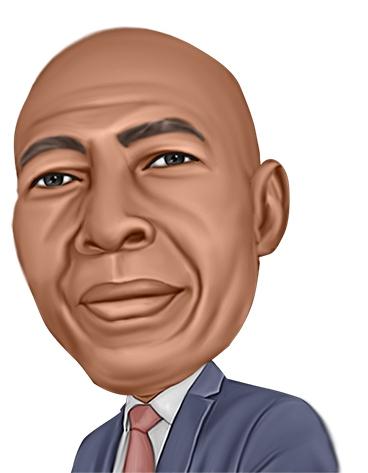
valued at $3 billion. The educational sector must be getting something right. Don't you think, sir?
I agree that our education has been resilient to the dynamics of change at many levels. But we are still scratching the surface and I am personally disappointed that for the past 30 years, the neglect visited upon the education sector by several arms of government is monumental – citing the example of ASSU! My point is that Nigeria would have done about 1000-percent more, if leadership is conscious of the frightening magnitude of the challenges of nation building, especially when education is deprioritized! Lee Kwan Yew of Singapore turned Singapore around from ashes to monument by reimagining education. He drafted their teachers and practitioners of the education Community and empowered them to visit the best 50 Universities in the world in pursuit of drafting Singapore’s National Education and University Curriculum and related syllabus. This singular act moved Singapore from a third world country to a first world nation. With respect to Fintech, it is important to take a studylook at India which currently has 83 Unicorns. The total revenue generated by 66 Indian unicorns has crossed the mark of US$15 billion. Around 42% of these unicorns are generating a revenue of over $100 million.60% of these unicorns belong to the three verticals: FinTech, Ecommerce, and SaaS. The cumulative funding raised by these unicorns till date stands at - US$ 51 billion. 18% of all unicorns have raised a funding of $1 billion individually. 50% of unicorns serve the B2B space, while 24% caters to B2C space (16% works for these sectors). Bengaluru has the maximum number of unicorns (1/3rd of the total unicorns), followed by the Delhi-NCR region. The cumulative employee strength in these unicorns is over 3.3 lakh, with seven
unicorns having more than 10,000 employees each. Indian unicorns have gone through more than 500 rounds of funding till date. Currently, there are three decacorns in the country, namely Paytm, Flipkart, and Byju’s. Around 90% of these startups achieved unicorn status in 10 or fewer years, out of which 70% of startups became unicorns in less than five years. The above reference on India’s Tech ecosystem is powered by education provided by the India Institute of Technology – rated as perhaps the best Edu-Tech destination in the world. Today, products from India IT landscape head and run some of the best rated IT Mega-companies in the world… ranging from Apple, Google, FB, etc. It is instructive therefore to recognise the urgent need to transform IT and STEM education in Nigeria.
The Nigeria Start-up Act of 2022 is a joint initiative by the federal government and Nigeria’s tech startup ecosystem with the goal to make Nigeria the leading digital centre in Africa. The seed fund is expected to be N10 billion annually and The National Information Technology Development Agency (NITDA), which was created by the National Information Technology Policy, which you pioneered, will serve as the secretariat for the council set up to ensure the Act's objectives are fulfilled. Sir, this all sounds very lovely and exciting but in reality how much difference will this initiative make assuming it's well implemented?
First, the enactment of the Tech Startup Law is highly commendable. However, the magnitude of the Science and Technology challenges facing the Nigerian Nation remains grossly misunderstood. Expectations are that we need to do the followings to redeem the lost-time and glory of the IT Policy of 22 years ago and digital transformation where Education is the central pillar:
a. Establish the Office of the Information Technology General of the Federation (OITGF).
b. Rebrand the defunct Nigeria Technical Peace Corps for Africa initiative into Nigeria Technology Innovation Corps for Africa (NTICA).
c. Establish 6 world class Institutes of Software Engineering in the six Regions of Nigeria ------ regrettably, there is presently NONE in Nigeria! Whereas that is the cornerstone of technology strategy
d. Establish a 10 Year Tax-Free Technology Innovation Pioneer Status (from Startup to maturity state). All the above will rescue about 20 million Nigerians out of poverty and provide work for 40.2 million underemployed youths as well as create wealth.
e. Promote Technology empowerment for girls and women with STEM to maximize the promise,opportunities and benefits of Science and Technology for national prominence
Sir, your laurels and accolades are so many. You have pioneered so many projects, organisations both in the public and private sector, and spearheaded so many policies too. You have won multiple awards both nationally and internationally. Tell us, which achievement are you most proud of ?
Pioneering a technology frontier is with all sense of humility a cherished life achievement. Meanwhile, I must acknowledge and recognize the resilience of my amiable and inspirational wife (Karin) of 45 years in marriage, who against all odds accompanied me back to Nigeria and has been the amazing pillar and strong supporter of all my Technology endeavors. I owe and love her so much. And indeed, Nigeria owes her much more in her service and contribution as Past District President of International Inner Wheel – Nigeria. Her water-supply project for thousands of Nigeria School Children at Ajao Estate High School is a worthy accomplishment to behold. Thank you, Karin, my only and unforgettable Schnulla! All what I have accomplished today would not be possible without your incredible understanding and abundant love. Thank you, Karin, for being there for me ALWAYS
I can't help myself, I must ask you this sir. Have any of your children caught the IT bug and followed their father's path?
God’s work is inspirationally wonderful and a complex DNA beyond human compression. To God be the glory. I am blessed with three Princesses, and they are all in the Technology Innovation Domain. I started exposing them to Technology-of-Things (ToT) - with particular reference to Software Coding, when the first Princess was 9 Years old. Today, my wife and I are eminently proud of their collective achievements Three of them are global ICONs in their tech-fields. My joy and that of my charming wife are beyond earthly
imagination and expression. “THANK YOU ONCE AGAIN FOR THE OPPORTUNITY TO BE FOUND WORTHY TO CONTRIBUTE TO YOUR CEREBRAL INITIATIVE. NEEDLESS TO STATE: EDUTIMES HAS BUILT A NEW TECHKNOWLEDGE FRONTIER – FROM ASHES TO MONUMENT LEVERAGING TECHNOLOGY, YOU HAVE INVIGORATED AND ADDED IMMENSE VALUE TO THE EDUCATION ECOSYSTEM”.
Chris Uwaje is acclaimed as the Pioneer of the National Information Technology Policy for Nigeria (2000-2002) which created the National IT Development Agency (NITDA). He is a founding member and Fellow of Nigeria Computer Society (NCS). He is also a Co-Founder, Past President and Fellow of the Institute of Software Practitioners of Nigeria (ISPON). Uwaje is the originator of the National Information Technology Merit Award (NITMA).
Uwaje was appointed Africa Chair for IEEE-Global Forum on IoTs. 2016-to date. He is the founder, Chief Software Architect and Chairman of Mobile Software Solutions and Connect Technologies Limited, respectively. He was Lead Consultant and conceptualized one of the foremost Nigerian Science & Information Technology Park (SIT Park) and State IT Policy for Akwa Ibom State in 2003-2005. He is an IT veteran and commands a senior leadership position in the IT Professional and Industry Domain with over four decades of onthe-job IT Practice as a Computer Scientist – Spread across four continents (Europe/Africa/Asia and North America).
Uwaje has published more than 300 papers on Information TechnologiesConcepts, Strategies, Processes, Research and Development, between 1998-to date Served as Chair, Panel of Judges, NCC Innovation Hub Competition -2019. Uwaje is the current Chair of National Software Strategic Think Tank (NSOFT) jointly established by NITDA AND NOTAP - 2019.
Special areas of Professional focus include but not limited to International, National & Regional IT Strategy/Policy Consulting and Digital Knowledge Innovation and incubation Parks Between 2010-14 as ISPON President, he established over 30 Software Clubs in the Tertiary Institutions in Nigeria. He was the convener and lead Host to National Software Conference and Competition, Lead Director, Software Incubation and Software Hackathon
Events in Nigeria and HackEbola Working Group in New York City, Washington DC USA. 2012-2014.
1975-1980, he studied at the Control Data Institute of Information Technology, Frankfurt, Germany. Equipped with the knowledge of Computer Science he enrolled for Operations Research at the British Institute of Engineering Technology UK, incorporating certificate (1980) in Communication Technology from the International Correspondence School, Glasgow, UK. He has presented numerous conference papers in Nigeria, USA and served as Panel Discussant at MIT/Boston/USA on Smart City. As speaker he has presented ICT Keynote at many Corporate ICT Conferences and at Nigeria Universities – Including but not limited to: UNN, UI, UNILAG, OAU, UNIBEN, UNIJOS, Covenant University and LASU/Others. He is instrumental to the establishment of the Nigerian Diaspora Organization in Information Technology
Uwaje is the core promoter for the establishment of National Software Strategy for Nigeria and served as member of the National IT Policy Blueprint Formulation and drafting Committee
In 2003, he served as a member of the Inter-Ministerial Committee on ICT Harmonization. Co-Chair: National Software Development Initiative (NSDI).
Uwaje has also served as Member of Council of the Nigeria Computer Society (NCS) and Computer Professional Registration Council of Nigeria (CPN) respectively. He served as member of the Governing Board of National Information Technology Development Agency (NITDA) and Chair of NITDA eSolve ICT
Competition 2014. He also served as a member of the National ICT Advisory Council to the Minister of Communication Technology – Dr. Mrs. Omobola Johnson. He is the convener and Vice-Chair IPv6 Council Nigeria. Uwaje has won numerous ICT Awards internationally and at home, including Lifetime ICT Achievement Award 2016.
Chris Uwaje has trained and mentored over 25,000 Youths worldwide in Digital Literacy in the last two decades
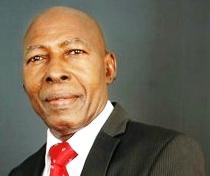
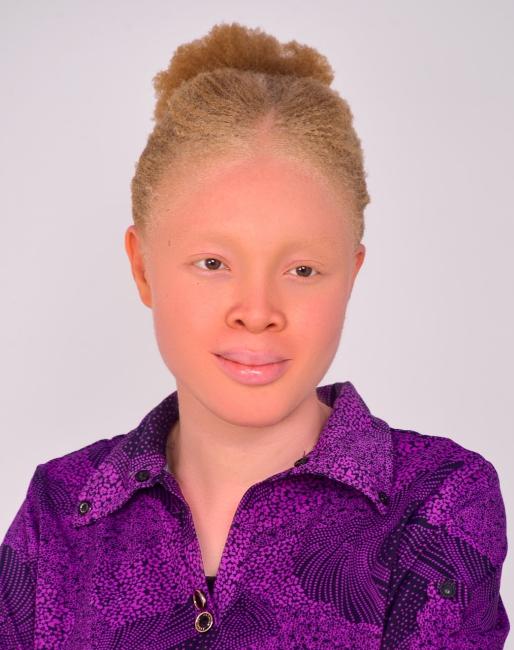
It was a December night.
The occasion was a class get-together. She could feel the expectation in the numerous eyes that were fixed on the young man in the spotlight. They would soon be on her, as she would soon stand in the beam as well.
She had always known this day would come; the day she would have to talk about her heroes. She had several; so how could she possibly eulogise just one without feeling partial? The prospect was both thrilling and worrying
She giggled quietly as she remembered what one of them said as they rounded off a counselling session one warm Wednesday evening
‘The heart is indeed a mystery. It can accommodate several people at once; and let go of others too. We may not relate so closely in some years' time, but I will remain grateful that I was here for you when it mattered.’
That was Miss Kate; a teacher in her secondary school.
Snapping back to the present, she looked up at the time piece mounted on a wooden platform ahead. It would be her turn in three minutes. Her mind took a swift trip down Memory Avenue as the metallic cool feel of her brooch greeted her hand.
Uncle Frank had been a big fan of her artwork when she was younger. He never tired of taking pictures of them and sharing them on his social media platforms. She had won contests, as a result of his efforts
Mrs Princeton, her accounting teacher, never stopped praising her accuracy with numbers. She also recommended her to teachers and business owners who needed help with keeping their books. That was how she ended up with a holiday job in her penultimate year in senior secondary school.
At the time she applied to come to this school, everyone thought a multi=potentialate like her had things figured out. Miss Kate stayed close; offering her support and accountability
When her family’s finances took a dip, Raphael was a school mate who connected her with a reputable source of funds to ensure her stay in school.
At the time she bore the weight of a crush, Nina was a friend who was there to help her accept and work through what she felt. Nina was her soul sister who stood up for her when she was nearly embarrassed at a party
As Nina’s face came into her line of vision, she could hear ‘Stacy Vicar’ being called. Stacy stilled her twenty-one year old mind and allowed her white shoes to carry her towards the podium.
Her blue gown fluttered as she took the microphone and faced the expectant crowd. She smiled and took a deep breath before launching into her speech.
’If I were to tell of just one hero, that would be unfair to others in their league. Yet, recounting all the exploits of these superb individuals would strip my listeners of their time unfairly
I would rather appreciate everyone who counseled, stood up for and was there for me when it mattered. They helped me win victories, without capes I have resolved to be that to someone too; a hero, nay, a true superhero!’
Does this ring a bell, friend? Have you any heroes in your own life? I bet you do
The greatest of them usually don't wear capes, trust me They simply bless the people they come across with the gifts of their uniqueness, thoughtfulness and a desire to help them (become better).
Our lives would be harder if certain people did not show up, or show up ready to take on the fight, on the battlefield of certain situations
If only we'd have more heroes! Will you be one?
Gbemisola Oluwasina is also known as Elegant Inker. She is committed to helping (personal, business, corporate) brands accelerate their visibility, influence and profit through writing services and coaching These (areas of) service(s) and coaching range from: creative writing, content writing, editing and proofreading, ghost writing, content strategy consultation, transcription to copy writing. She has worked with 10+ brands, authors and writers. She has had her poems and articles published in magazines, too
Gbemisola has been told that she is blessed with a voice that enriches what she says. She enjoys speaking, and has honoured 20+ virtual speaking invitations from 2020 till date These engagements covered topics around: writing, content creation, online business, social media positioning, public speaking, (self) leadership, the Christian faith and albinism. She looks forward to more of these, as well as to features in the media and TED(X).
Gbemisola is a student of International Relations at Covenant University, who has had the privilege of occupying different leadership offices. She is a recipient of numerous certificates and awards. She is an ardent believer that individuals are responsible for the achievement of organisational and national goals. She is a lover of Abba and of the progress of others She likes to sing, to learn other languages and to make beaded articles. She can’t say she is a lover of games, but is thankful to have a hang of Scrabble. She Ioves the colours, purple and lemon.
Email: gbemisolaoluwasina@gmail.co
m
YouTube, Facebook and LinkedIn: Gbemisola
Oluwasina
Telegram channel, Instagram and Facebook pages: Elegant Inker
© Gbemisola Oluwasina (Elegant Inker)
According to a recent study, enrollment in teacher preparation programs has dropped dramatically in almost every country over the last eight years Teachers all over the world are looking for new opportunities Here are three ways educators can develop their personal brand:
First, narrow your niche and focus on creating a personal brand around it by offering resources, products, and training that position you as an expert in that niche
Second, develop solutions that can be distributed; in order to be a sought-after educator, we must be able to find the solutions you are providing to be extremely valuable - package your solutions and distribute them across social media. Finally, maintain consistency
You must understand that building a reputable brand is a marathon, not a sprint. The results you seek will take time, so let consistency triumph over intensity. You'll quickly become the go-to solution in that niche
Itofa Ivarah is a Nonprofit
Management Consultant at ID consulting; a firm that helps Nonprofits become sustainable
He attended the university of Benin & currently a Masters candidate of Int'l Development at the University of Galway, Ireland.
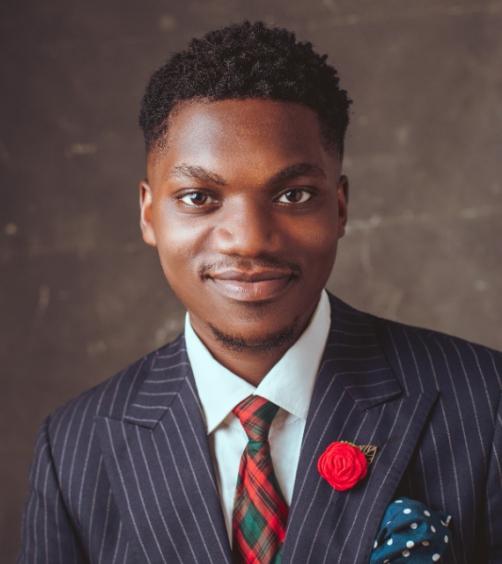
Itofa Ivarah is a social entrepreneur championing zero hunger in Nigeria through My 9ja FoodBank and Church On They Street Int'l, two Nonprofits he founded. He has raised over $12,000 in funding to tackle malnutrition and design community ledintervention to reduce poverty in Nigeria. His work has been featured on both local and international platforms like The Vanguard Nigeria, TEDx and the UN Millennium Fellowship. He is an Author and a recipient of the 2022 Oxfam award as a part of his contribution towards championing Zero Hunger in Nigeria.
Ivarah Itofa United Nations Millennium Fellow'21 Founder, Church On The Street www.churchonthestreetng.orgVetland Junior Gammar School, Agege, Lagos, a public secondary school transformed in 10 months from aged, dilapidated buildings into an ultra-modern, 2-way interactive touchscreen & Tablet PC enabled school. In a swift response to the devastating impact of Covid on education, Lagos State in collaboration with Wowbii designed and delivered a solarpowered, 2-way digital and remote
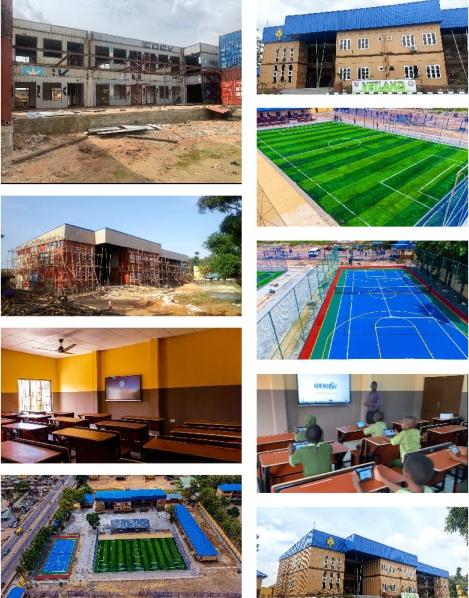
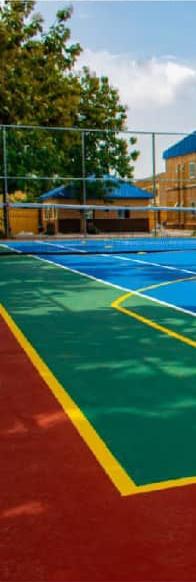
learning environment comprising 12 classroom assembled with fifty two shipping containers. The school will equip the next generation of learners with the digital skills required for the 21st century learner in a stimulating setting complete with world class, multi-purpose sports facilities for whole-some transformation of spirit, mind and body

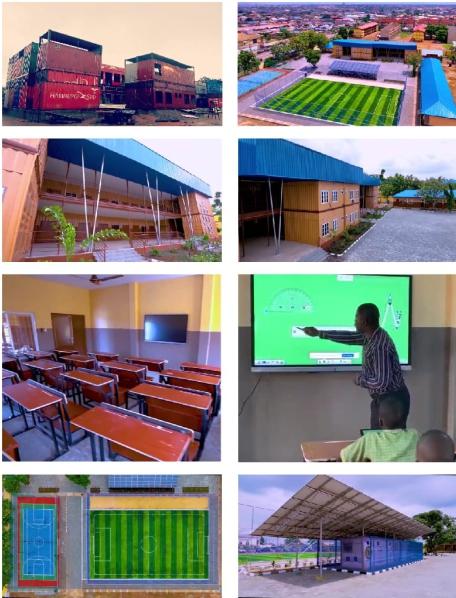
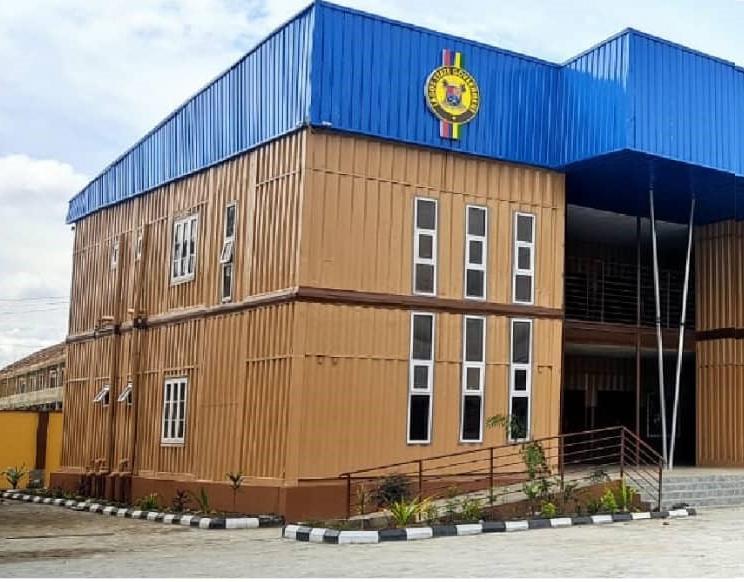
“ The vision transformation of Vetland Junior Grammar School, Agege
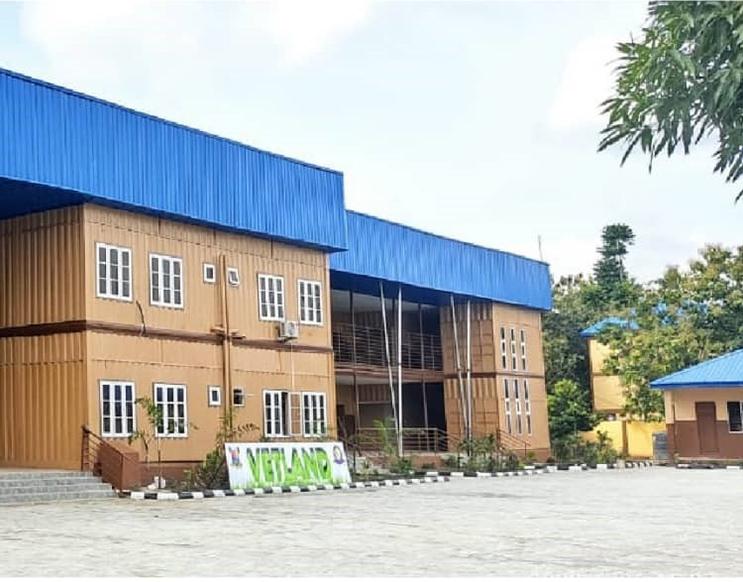
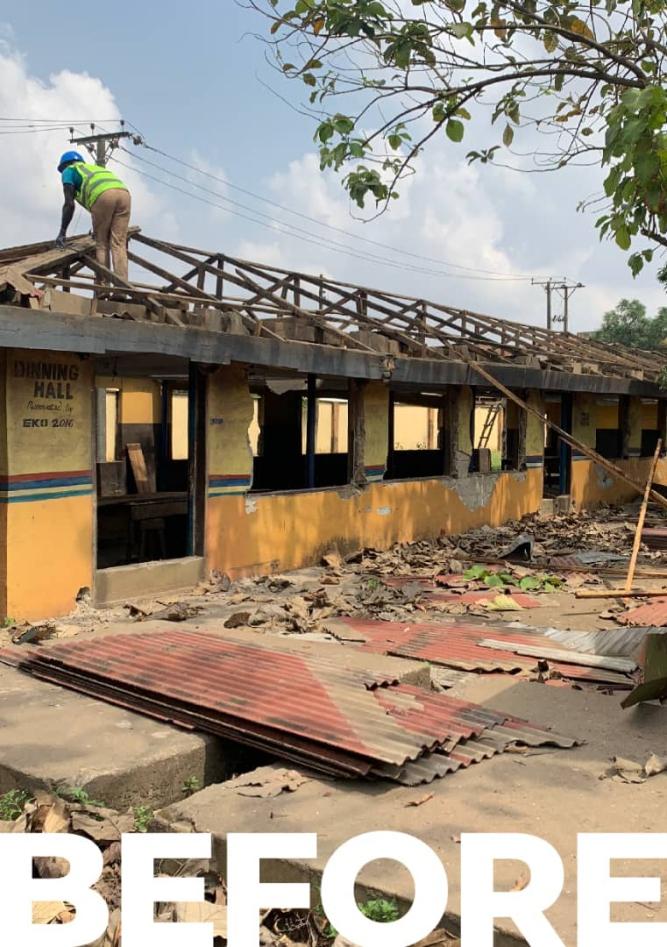

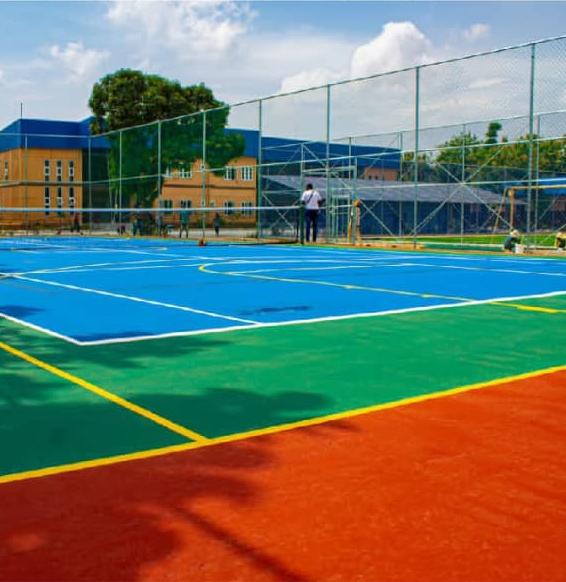
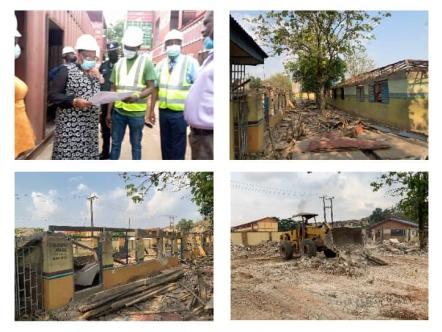
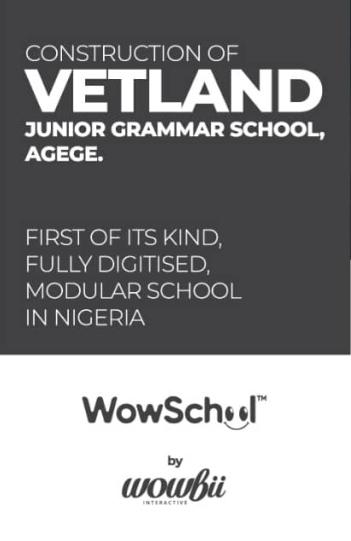
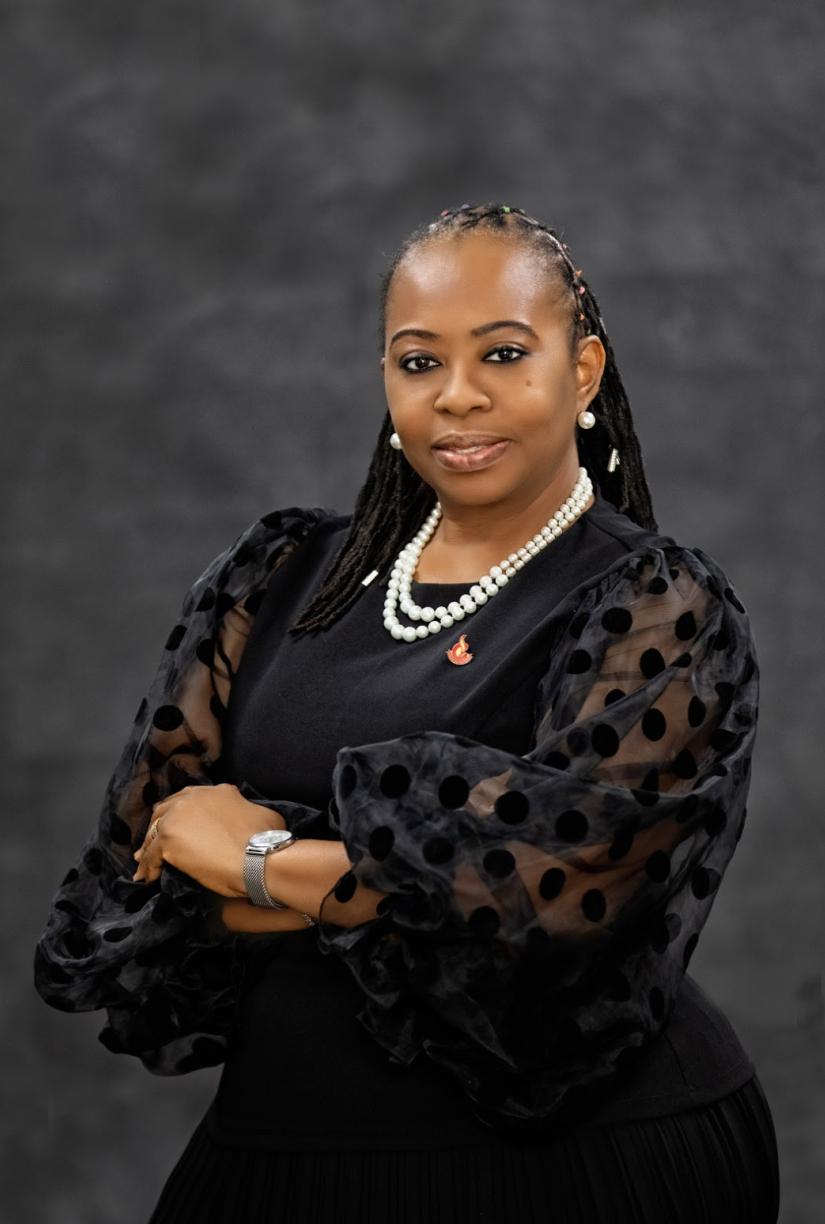
In this world, there are certain brands which have become
synonymous with quality. Whether that be the prized Mercedes Benz (since 1926) in the area of motor vehicles or the highly esteemed Oxford University (since 1096) in the area of tertiary education. No matter where you find yourself in the world, the people's verdict regarding these brands will always be the same. Quality. The Corona educational group which spans the whole gamut of education, namely nursery, primary, secondary and the Teacher Training tertiary institution - and all run by the Corona Schools Trust Council, boasts of this same reputation, quality. Founded in 1955, five years before Nigeria's independence, it has not only stood the test of time but remains amongst the very best till this day. It was therefore with much joy and gratitude that we at EduTimes Africa received the news that Mrs Adeyoyin Adesina, the amiable but expectedly busy Chief Executive Officer of Corona Schools Trust Council, had accepted our invitation for an interview. Kindly read on.
Thank you so much for carving out time for this interview ma.
Please tell us a little about yourself. How were your growing up years? Where did you go to school?
I was born in Ibadan about 59 years ago to an Egba father and an Efik mother. After a few years, my family moved down to Lagos, and I recall my growing up years living in Surulere on a close of about nine houses All the children knew one another and played freely in the neighbourhood. I remember with nostalgia, our walks to supermarkets and stores around us; Leventis Stores, UTC, nearby supermarkets, the local market…. life really was not so complicated then. My mother was working in Kingsway Stores then and it was a second home to me First the Store on Marina, then subsequently when she was transferred to manage the Store in GRA, Ikeja. Those were the days! I started my primary education in Ibadan before moving to continue in Lagos. My first degree was obtained from the University of Ife, and post-graduate diplomas from the University of Lagos and the University of Nottingham. Interestingly, I started my career as a banker but veered off into the education sector, following what I believe is my calling and purpose
You have a background in banking. Which bank did you work for and what made you switch to the educational sector?
I started my banking career in 1988 in the now defunct, North South Bank. Afterwards, I worked in several Microfinance Banks before things went awry in the banking sector. At this time, I had a young family and decided to take some time off work to take care of my children. My interest in the education sector was spiked by my counseling role in the church. It came naturally to me. I remember the late Selwyn Hughes, writer of the devotional Every Day with Jesus, was in Lagos at a time and had a workshop for church workers in the counseling and teaching ministries. I attended this programme, which I think spanned a period of a few days, and afterwards, I was convinced this was my calling. I continued to serve in church and when I was ready to go back into paid employment, I went into education.
I learned that you also spent some time working in the print media. Of all the sectors that you have worked in, which has given you the most fulfillment and why?
My stint in the print media was a short one I served in the Plateau Publishing Company, Jos as a features writer for the Standard Newspaper, and after my service year, I
stayed on briefly with them before I returned to Lagos
Without batting an eyelid, I will tell you that I have found the greatest fulfilment in my role as educator. As an educator, I had immense pleasure in seeing the children evolve before my very eyes. The impact of a teacher in the life of a young child is one that lasts a lifetime and should not be taken lightly or mishandled. The reality of this, to me, shows the awesome responsibility that God has placed on the shoulders of teachers, akin to that of a parent, if not even greater. It is something I consider a great privilege. As I always say, Jesus Himself, was a teacher and this shows how important that role is at whatever level we are called to serve. I had the opportunity to go back to the bank when I started out in the education sector, but I was not swayed in my resolve to go into education. I have never regretted that decision.
Ma, when you joined Corona School, what was your ambition? Did it ever cross your mind during those early days that you would one day become the overall head? Honestly, I just wanted to be the best at whatever I was appointed to do. I knew that if I did that well, any other thing could follow. I recall at the interview I was asked a similar question and my response was that I would rather be a small fish in a big pool of water than a gigantic fish in a small pool of water. Playing in a bigger space will give me more room to grow and prove myself. I thank God for how far He has brought me
Do any vivid high and low points come to mind when you remember your school days?
Life itself is a mix of high and low points But, when I remember my school days, I just think of how far Nigeria has strayed from the country many of us grew up in. As I said earlier, life was not so complicated then. School was quite interesting, even though there were moments when you could hardly say that. The one incident I cannot forget easily was the great ASUU strike of 1986 that delayed my graduation by a few months. It was a horrendous experience. This is something our youths should not be put through.
Do you remember any funny incident while you were still in school that evokes involuntary laughter in you anytime it comes to your mind?
Oh my! Quite a few, with the benefit of hindsight. I also got my fair share of getting into scrapes and escaping some by a hair’s breadth.
Some have said that too many Nigerians see the acquisition of academic credentials for the sole
purpose of securing a good occupation as the objective of education? Do you agree with them? If not, how would you define the purpose and benefits of a good education?
It all depends on one’s definition of ‘Education.’ Aristotle defined education as ' the creation of a sound mind in a sound body '. Thus, to him the aim of education was the welfare of individuals so as to bring happiness in their lives
The dictionary also defines education as ‘the process of receiving or giving systematic instruction, especially at a school or university’ This results in the award of a certificate, which, in itself, is not bad, but that is not all education is about nor should it be the main objective
Before now, there had been an overdependence on certification for jobs in Nigeria. There is a slow and gradual shift from that perspective now. The objective of education now is not just to secure a good job but to achieve well-rounded wellness, global mindedness, critical thinking and relevant skill sets. In addition, many of our youths, these days, are not too inclined towards picking up paid employment but rather starting up their own businesses. This requires a plethora of skill sets, diversity, adaptability, risk taking, critical thinking, and sheer grit. A good educational background lays the foundation for this
Is there any particular policy that you would love to see change in the educational sector? Either in Lagos state or in Nigeria as a whole. A change I would love to see is the prioritization of the provision and quality of education by government and all stakeholders to EVERY child in Nigeria. This is the only way we can achieve sustainable development for the country Equal priority should also be given to teacher training, development, and remuneration. All the indices that impact the provision of quality education nationwide must be carefully addressed and matched with global best practices
Speaking to what has become a common mantra amongst some youth that "education is a scam". What has been your experience regarding those who Corona Schools have produced? In terms of attainment in life, whether that be here in Nigeria or even abroad?
I must say that I have not heard that mantra before. I would not know in what ways or context education has been termed a ‘scam’.
However, working in a school setting that prides itself on constantly reassessing relevance and impact and has a wide array of creditable and noteworthy alumni, I can assure you education is not a scam.
Of all your achievements as Head of School, Principal and the overall head of Corona Schools being the Chief Executive Officer of Corona Schools Trust Council, which has been the most gratifying?
They all have been gratifying in unique ways. All roles were focused on working with and developing people and children, which I thoroughly enjoy. I must, however, single out the role of Head of School, Corona School, Lekki. As the pioneer Head of School, it was a novel experience and one that demanded everything I had to give and more. I am grateful to God for that experience
What would be your advice to our young ones who also desire to reach the zenith of their chosen career one day?
Be true to yourself! Embody discipline, dedication, and determination. Develop and hold yourself accountable to sound moral and ethical values. Above all, never forget that it is not by your power or might but by the grace of God. When you walk in the fear of God, even when you fall, you will not fall too far off the ground. Be prepared to make mistakes but above that, learn from those mistakes. Finally, do not be afraid to dream big and work towards realising your dreams. Success is based on charting the right course in life and maintaining focus
Would you say your education made you? If yes, how?
Education is learning. It is by actively and continually learning from situations, circumstances, and people around me that I have the wealth and breadth of knowledge I have today. However, my faith in God will not allow me to say conclusively that education made me. I consider it a privilege, by the grace of God, that I am where I am today and still aspiring
Mrs. Adeyoyin Adesina is a veteran educator, who in over two decades has built an enviable career in Nigeria's educational sector. She has risen to become a seasoned stakeholder, impacting the lives of students and educators alike with her sound acumen. Her work experience and career spanned the print media and the banking sector before her entry into education.
She has an avid interest in the growth and development of children and is seasoned in running and organizing an enviable learning environment. Attesting to this are the various roles and responsibilities she has held in her years in the education space to date:
• Academic Superintendent (Primary), Avi Cenna School, GRA, Ikeja, Lagos
• Head of School, Corona School Victoria Island
• Pioneer Head of School, Corona School, Lekki
• Principal, Corona Secondary School, Agbara
• Chief Executive Officer, Corona Schools’ Trust Council
She holds a degree in English Studies from the University of Ife, a Post Graduate Diploma in Education from the University of Lagos, and a Postgraduate Certificate in Education (International) from the University of Nottingham. She is also a Microsoft certified educator (Microsoft Innovative Educator Expert - MIEE).
Adeyoyin has been serving as the Chief Executive Officer of Corona Schools’ Trust Council for over six (6) years, overseeing all the schools within the brand’s academic spectrum (Nursery, Primary, Secondary, and Tertiary). She is also a member of the Corona Schools' Trust Council Governing Board. She further promotes her personal voluntary work through varied fields of interest.
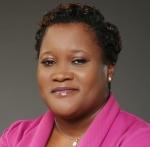
With excellent organisational, communicative, and culinary skills, Adeyoyin is a mentor, a coach, an astute leader, a public speaker and is happily married with three grown children.
As a parent or educator to children between the ages of 0-5years, what do you think they should be doing, what should they know and how should they be engaged to help them achieve their milestones. You need to read to the end so you know the answers to all these questions and more
The first 5 years of a child’s life are the most important period of development: physically, mentally, socially, cognitively and morally. For instance, their communication skills develop rapidly during the first 5 years Children develop quickly in the Early Years, and early years practitioners aim to do all they can to help them have the best possible start in life. According to the United Nations Convention on the Rights of the Child, children have a right to provision which enables them develop their personalities, talents and abilities irrespective of ethnicity, culture or religion, home language, family background, learning difficulties, disabilities or gender Oftentimes, parents and educators put their little ones under a lot of pressure to speak, walk, write, read and play without fully understanding the appropriate developmental stages and milestones
When we say ‘Milestones’, what do we really mean? According to the Oxford Dictionary, ‘a Milestone is a significant stage or event in the development of something’. Thus,
Developmental milestones are specific skills and abilities that children typically acquire during a specific time frame as they grow and develop. These milestones are divided into different domains, including physical, cognitive, social, and emotional development.
Children reach milestones in how they play, learn, speak, act and move.
The importance of creating an enabling environment and providing resources to ensure children get the best in achieving all milestones can not be overemphasized. Parents and practitioners must be equipped with the knowledge of what is attainable per time. It should never be ‘ONE
SIZE FITS ALL’
In this article are just a few developmental milestones to look out for as your little ones grow and develop. Remember to celebrate every milestone and put it down in a journal.

Infants (0-12months)
Lifts head and chest when lying on stomach
Rolls over from stomach to back and back to stomach
Reaches for and grasps objects
Begins to crawl or scoot
Babbles and imitates sounds
Toddlers (1-3 years)
Walks independently
Begins to run and climb stairs
Begins to use utensils and cups
Speaks words and short phrases
Shows independence and defiance
Pre-Schoolers (3-5 years)
Uses scissors and pencils
Draws basic shapes and letters
Follows two-step directions
Engages in imaginative play
Begins to form friendships and play cooperatively
It is important to note that every child develops at their own pace, and these milestones are just general guidelines. If you have concerns about your child's development, it is always best to consult with a pediatrician or other healthcare providers
"Earlier is not better, all children accomplish milestones in their own way, in their own time”
-
Magda GerberUche Okoro is a veteran educator with expertise in early years education. She is currently heading an international school in Abuja, Nigeria. She is a seasoned early years trainer who has vast knowledge of the intricacies of adopting the British Early Years Framework, which she is well acquainted with and has had several trainings on how the curriculum can be adopted in Nigerian schools. Uche has a Bachelor’s Degree in Political Science from the University of Abuja and a Post Graduate Diploma in Education. She also has an Early Childhood diploma from the Open University, Australia and is a registered Teacher in Nigeria.
She is the Program Coordinator of the Teacher Development Program and the founder of ‘The EYFS Hub’, an educational platform with the objective to change the narrative of the Nigerian Education sector. She has training in Special Education, Safeguarding, Early Childhood Development and Administration, Curriculum Instruction, Teacher Leadership, amongst others. Uche has participated in the Nurturing Program to help improve student wellbeing. She is passionate about keeping children safe in education and is very experienced in how this can be effective within an African context.
Instagram:
@Uchywand_eyfshub
Email: deyfsnetwork@gmail.com
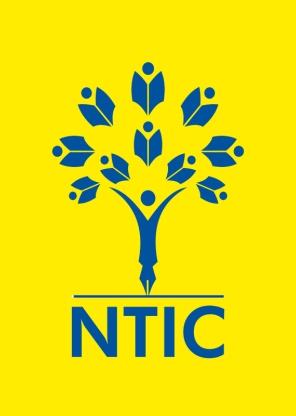
Building a successful career starts with setting clear and

focused goals. Your career goals serve as a roadmap for your professional journey, and pursuing them with determination can lead to a fulfilling and satisfying career. However, setting and pursuing career goals can be overwhelming, and it's essential to approach the process with a clear and focused mindset. Let's discuss how to build focused and healthy career goals and pursue them with intention and determination
Assess your strengths and weaknesses:
Before setting career goals, take the time to assess your strengths and weaknesses. Knowing your strengths will help you set goals that align with your natural abilities while identifying your weaknesses can help you focus on areas where you need improvement.
Define your long-term career aspirations:
Once you've assessed your strengths and weaknesses, it's time to define your long-term career aspirations. Consider where you want to be in five or ten years, and what steps you need to take to get there. Your long-term career aspirations will serve as the foundation for
Set short-term goals: Short-term goals should be specific, measurable, achievable, relevant, and time-bound. Consider what you can accomplish in the next six months to a year that will move you closer to your long-term career aspirations.
Prioritize your goals: It's essential to prioritize your goals to ensure you're focusing your time and energy on the most important tasks. Consider which goals are most critical to achieving your long-term career aspirations and focus on those first.
Create a plan of action:
Once you've set your goals and priorities, it's time to create a plan of action. Break down each goal into actionable steps, and create a timeline for completing them. Consider the resources and support you need to achieve each goal, and create a plan to acquire them.
Monitor your progress:
To ensure you're staying on track, monitor your progress regularly Review your goals and the steps you've taken to achieve them. Celebrate your accomplishments and identify areas where you need to improve
Adapt and adjust: As you pursue your career goals, be prepared to adapt and adjust your plan as needed. Your priorities and circumstances may change, and you may need to revise your goals and plan of action accordingly
Seek feedback and support: Finally, seek feedback and support from others. Consider finding a mentor or professional to gain insight and guidance from others in your field. Don't be afraid to ask for feedback on your progress and seek support when you need it.
How should one go about building focused and healthy career goals and pursuing them?
Madagascar and Mozambique
Beit Trust Postgraduate scholarships – These scholarships are available for postgraduate students from Zambia, Zimbabwe and Malawi to study at a choice of 22 South African or British universities
mid-career professionals from sub-Saharan Africa to the US for a year of non-degree graduate-level study, leadership development and professional collaboration with US counterparts
knowledge gained through the scholarship will be used to improve policy, practice or reform in their home country The award is open to master’s students
As an international student, searching for scholarships is one of the biggest tasks you will undertake before you head off to study abroad.
It can be difficult to know where to start because there are many different scholarships and partial scholarships that international students can apply for

Below is a selection of scholarships available to African students. This is not a definitive list as lots of universities will have their own scholarships that international students from a range of countries can apply for, so use this article as a starting point to help you search for the right scholarship for you.
Aga Khan Foundation – The Aga Khan Foundation provides a selection of scholarships for postgraduate students who have no other means of financing their studies. Scholarships are open to students from a range of African countries, including Kenya, Tanzania, Uganda,
Mastercard Foundation Scholars Programme –Academically strong students may apply to be a Mastercard scholar at a range of universities in France, the US, the UK and Canada. The programme is open to both undergraduate and postgraduate students
Zawadi Africa Foundation Fund – This programme aims to support female students from Africa who wish to study in the US, Canada or Africa.
To study in the US Fulbright Foreign Student programme – A range of opportunities for graduate students and young professionals to study or work in the US for six months up to a year
7UP Harvard Business School Scholarship – For Nigerians wishing to pursue an MBA at Harvard University, this scholarship covers tuition, housing and travel to and from the US
Hubert Humphrey Fellowship – The Humphrey Programme brings young and
To study in the UK Commonwealth Scholarships for Developing Commonwealth Countries –There are a range of scholarships available for students from Commonwealth countries at master’s and PhD level. The Commonwealth Shared Scholarship Scheme is open to international students from any Commonwealth country looking to do a master’s programme in the UK. The area of the study must aid the development of technology, economy or society within the student’s country of origin.
LSE Commonwealth Shared Scholarship scheme – The LSE Commonwealth Shared Scholarship Scheme is awarded to students from developing Commonwealth countries to study at the London School of Economics and Political Science
Reach Oxford Scholarships –These scholarships are for students from a range of African countries who have already received admission to the University of Oxford.
Chevening Scholarships –
Chevening is the UK government’s international awards scheme. It offers a range of scholarships for African students
To study in Australia Australia Awards Africa –Applicants for the Australia Awards must be able to demonstrate that the
Macquarie University ViceChancellor’s International Scholarship – African Women in STEM – This is a partial scholarship that supports female students from Africa to study science, technology, engineering and mathematics at Macquarie University. The scholarship covers 50 per cent of tuition fees
University of Western Australia Global Excellence Scholarship – A range of scholarships are available for both undergraduate and postgraduate students wishing to study at The University of Western Australia.
University of Adelaide
Global Academic Excellence Scholarship – Open to students from any country (excluding Australia and New Zealand), these scholarships offer a 50 per cent reduction of tuition fees for successful candidates
Vanier Canada Graduate Scholarships – These were created to attract and retain world-class doctoral students. The scholarship is worth C$50,000 (£31,000) per year for three years and can be used towards a doctoral degree or combined master’s and PhD
Banting Postdoctoral Fellowships – These are offered to international students doing postgraduate study in natural and social sciences or health sciences

If you are an
African student considering studying abroad, then this guide to some of the scholarships you can apply for might prove helpful
It has been said that
anyone who aspires to be an effective leader will need to be equipped with both intrapersonal and interpersonal skills. Individual sports like athletics teach one
critical intrapersonal skills which relates to emotional intelligence and these include the ability to focus, selfconfidence, resilience and selfdiscipline. Similarly, team sports such as football and
basketball help the individual to develop interpersonal skills such as the art of communication, being a team player, empathy, responsibility, dependability, patience and adaptability. Contrary to the
belief of many African educators, the regular playing of sports at school does not amount to a waste of time but moulds character and nurtures qualitative leadership
Super Eagles icon Sunday Oliseh
has reacted to Victor Osimhen's impressive performance for Napoli this season. The Super Eagles icon hailed his compatriot's performance and made a future prediction in response to the remarks of Mimi Fawaz, a Nigerian-Lebanese sports journalist, who currently works as a presenter on Focus on Africa, a BBC news program.
"Victor Osimhen's goal tonight helps Napoli win their first Serie A trophy since 1990. He's also the league's top scorer. As they say, Naija no dey carry last. Osimhen, in my opinion, is now in the running for the world crown! The next step? The Premier League, I think. Well done brother!" the former Super Eagles captain tweeted.
 By www.sportnewsafrica.com
By www.sportnewsafrica.com
time the first pivot to exceed the 30 points per game since Moses Malone, in 1981/82. Only five pivots have managed to reach the 30-point average: Wilt Chamberlain (7 times), Kareem Abdul-Jabbar (x3), Bob McAdoo (x3) Walt Bellamy (x1) and then Moses Malone (x1).
 By www.sportnewsafrica.com
By www.sportnewsafrica.com
Joel Embiid has written his name in gold letters in the NBA. The Cameroonian became the second African to win the title of MVP after the Nigerian Hakeem Olajuwon in 1994. Return on the coronation of the pivot of the Sixers who finally touched the grail.
Before last season, the last pivot to be the top scorer in the regular season was Shaquille O'Neal in 2000. Joel Embiid achieved this feat in 2021-2022 with an average of 30.6 points per game. The first African to achieve such a feat in the NBA, theplayer became at the same
This season 2022-2023, Joel Embiid finished again the best scorer of the regular season. This, with an even higher average: 33.1 points per game He also has the sixth best scoring average in the history of the NBA; Even if his main opponent Nikola Jokic finished the season with averages in triple-double, the Cameroonian, in view of his performance on the court, deserved his MVP award. Especially that against the bigs, the Big man showed all his class. We remember his confrontation against the Denver of Nikola Jokic where he had planted 47 points, 18 rebounds, 5 assists, 3 steals and 2 counters with the bonus of the basket of victory. While the Serbian was content with 24
Last season, Joel Embiid had multiplied the media outings Like a politician in campaign, the pivot thought that by multiplying the statements, he could print in the head of the people that he was the elected one, the only one who deserved this trophy of MVP. Unfortunately, despite the season of his life, the Cameroonian was beaten by Nikola Jokic who won for the second consecutive year
Unlike the 2021-2022 season, Joel Embiid has not said a word this year. Or at least, played the indifference. Claiming loudly that being MVP didn't matter much. The Philadelphia colossus, however, hid his game well. "I know I told you that I wasn't interested in the MVP award, but that was just so you would leave me alone," he said in a press conference. In addition, the MVP award has become the Michael Jordan award. Embiid's name is the first to be given this title
countries pay an economic price: According to The World Bank, excluding people with disabilities from educational and other opportunities may lower a country’s GDP by 3 percent to 7 percent — a particularly heavy burden on nations in the Global South.
another as capable and gifted — as friends and equals. A good teacher can tell you this But a good teammate can prove it. Children who learn to play together can learn, grow, and ultimately live together
These last few years have taught us a lot about isolation and separation. Millions of us have felt the pain of bereavement, the loneliness of quarantine, the sad irritation of working and learning remotely. Sharing meals and celebrations in person is so much sweeter now. We savor the joy when we include others — and when others include us
We understand better now that social inclusion is a basic human need that can only be met by lowering the barriers that isolate and divide us
So let's start. Jan. 24 is the International Day of Education, when the world highlights the greatest known instrument for social inclusion — a good education, which can put any child on a path to a fulfilling life. What better way to mark the day than to begin widening the circle of inclusion to benefit one of the most marginalized populations in the world — people with intellectual disabilities
Children with intellectual disabilities routinely encounter ostracism and bullying They grow up apart and unequal, their gifts and abilities rejected, their vast potential thwarted. Social isolation, stigma and shame are the norm. Those who endure the prejudice understand it all too well, but an alarming number of people without disabilities fail to see it — a problem researchers call the disability perception gap. This helps to explain how, while many countries have made significant strides to meet the needs of children with intellectual disabilities, many others have not taken even the first steps. And no nation has come close to true and full inclusion.
More than 85 percent of those who are primary-age and out of school have never gone to school at all. Only about 40 percent of low- and middle-income countries have education budgets for children with disabilities. And as children languish,
But here is the good news. Educators and scholars have learned how to make inclusion real. Their insights into child development and behavior show that it's possible to build mindsets that value the potential of every student.
To help build truly inclusive classrooms and communities the world over, Special Olympics is convening a Global Leadership Coalition for Inclusion, funded by a grant from the Stavros Niarchos Foundation. This alliance of government leaders will develop an agenda of inclusive strategies in education and child welfare and push for the policies and money to make inclusion happen.
One proven way to do this is a groundbreaking, evidence-based Special Olympics program called Unified Champion Schools. In thousands of schools in 152 countries, students who don't have intellectual disabilities learn from those who do, and vice versa. These young people take the lead in creating welcoming social norms, as sports teammates, club members and participants in a wide range of school activities
In these schools, we have seen a spirit of inclusion take root, offering a welcome alternative to the usual schoolyard culture
Unified Champion Schools reap a cascade of benefits. In Mexico, Brazil, Jamaica, India, Thailand, Rwanda and Mongolia, schools have improved student grades and teacher confidence. In Greece, students without intellectual disabilities were more than nine times more likely to say they could learn from people who are different from them. In India and Kenya, more than 90 percent of students without intellectual disabilities reported a mindset more accepting of those with differences.
Unified Champion Schools are not the only path to social inclusion. But the model is tested, effective and ready to use. For the global community, always ready to talk but often slow to act, they are a way to finally get serious about a commitment to justice
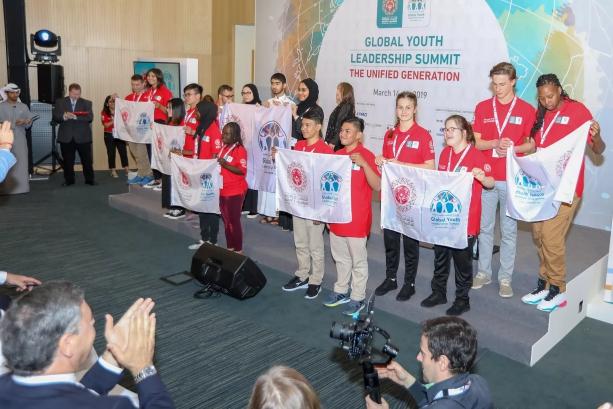
According to the United Nations, most member countries of the Convention on the Rights of Persons With Disabilities are not on track to ensure an “inclusive and equitable quality education” for all by 2030. At a recent education summit, UN Secretary-General António Guterres urged countries to increase spending on education to 15 percent, from 5 percent.
That's a magnificent goal. But let's also keep sight of the need to make inclusion for people with intellectual disabilities a top global priority

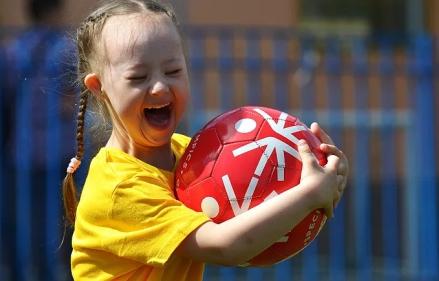
of cliquey isolation and casual cruelty. The new norms are infused throughout the wider community, with peers inspiring peers to think and act in a better way — with inclusive minds. Unified sports and activities allow classmates to see one
As people with intellectual disabilities constitute approximately 3 percent of the population, Special Olympics is calling on all governments to allocate at least 3 percent of their education funding to highquality, evidenced-based inclusionary practices that fully integrate students with intellectual disabilities into their school communities. Full inclusion in education requires a commitment to social inclusion — turning isolated students into teammates, partners, allies, friends. Mere physical inclusion is not enough.
To build inclusive classrooms, let young people with intellectual disabilities take the lead

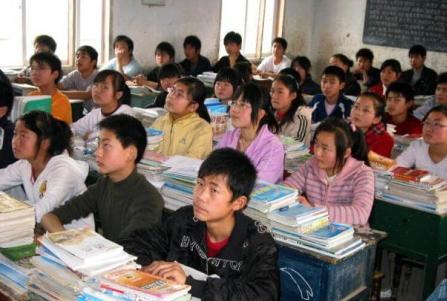 by Ayushi Sareen | www.scoopwhoop.com
PHOHO: www.world-schools.com
by Ayushi Sareen | www.scoopwhoop.com
PHOHO: www.world-schools.com
School and education aren’t all that
boring, you know. You learn a lot of cool things too. Like remember the time you made a working model of an exploding volcano? Or when you spent hours understanding electric circuits only to act all cool while making your nephew’s model of a windmill? Well, it’s not all that boring now, is it?
No matter how much we claim to hate school, or how many times we sing, ‘We don’t need no education,’ the fact of the matter is that we pretty much do
Here are some interesting facts about education from around the world which might just make you look at it with a new perspective
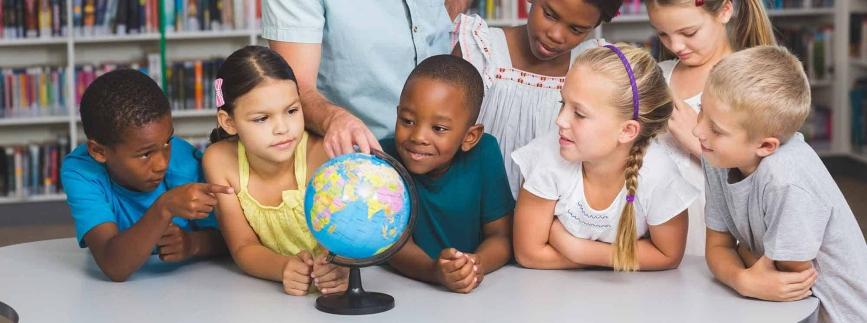
Youtube.com
The City Montessori School in Lucknow, India, is the largest school in the world in terms of number of students, with more than 32,000 students.
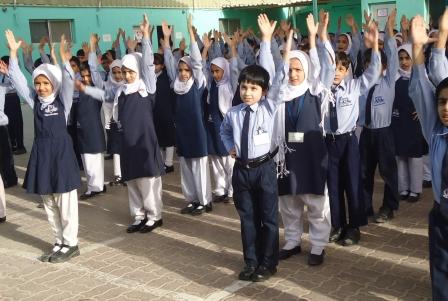

1 2 3 4
Theepochtimes.com
Highereducation.frenchculture.org
5. France has the shortest school year from August to June and also the longest school day
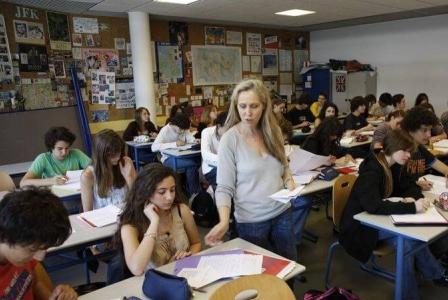

Prettypinktulips.com
6. Children in Germany receive a special cone called Schultüte, which is filled with pens, pencils, books and snacks. But the catch is that they can only open it when they start school. I guess, they are the only kids who’ll be excited about school, all because of the presents.
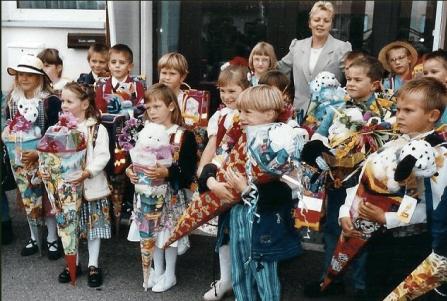
Newlifechristianschool.org
7. In Holland, children start school on the day they turn 4, which means that there’s always someone new in the class Doesn’t it get confusing for the teacher as well as the students?
Artikuno.com
9. Kids in Japan are the most independent of the lot. They travel to school alone, clean their own classrooms and even carry lunch. There are no janitors or canteens in the schools

Huffingtonpost.co.uk
10. Turin has the smallest school in the world with only one pupil. Confused if we should be happy for the child or pity him/her?
5 6 7 8 9 10 . . DID YOU KNOW?
Telegraph.co.uk
11. Kids in Finland do not start school until the age of 7, which is one of the oldest ages around the world to start school.
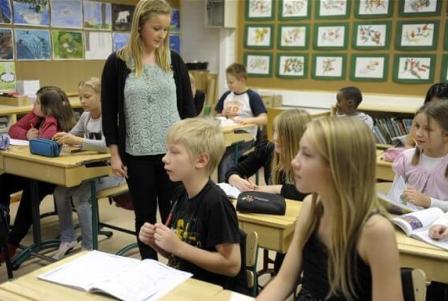
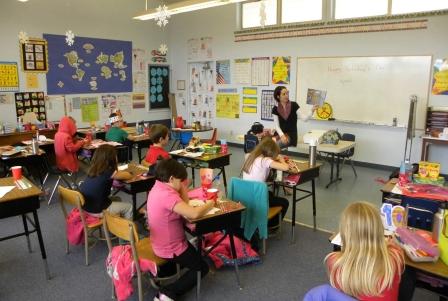
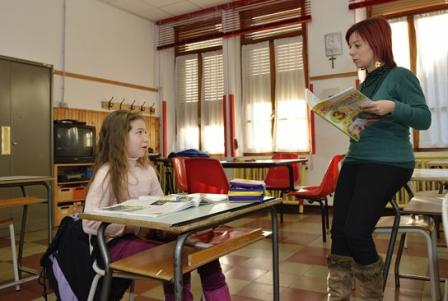
Lee-evans.co.uk 11 12
8. World’s oldest school is in Canterbury, England. The King’s School, as it is named, was founded in 597 AD

Povertyactionlab.org
12. In Kenya, it is not mandatory for children to go to school, but they mostly go anyway. Bless them!
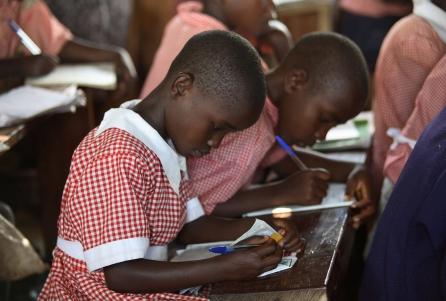
On 19th April 2023, The Toolkit iSkills (TTI) Limited
officially launched its advanced technology training in welding
The Toolkit Innovation Hub is one of a kind and uses the latest technology to offer skills to young people. Young people are trained for two months in Metal Inert Gas (MIG) welding through virtual reality before a one-month training in the physical workshop. Virtual reality welding offers 80% of the skills while physical welding offers 20%. Virtual reality training has reduced training costs, eliminated safety hazards, and reduced the time taken to train as a welder. The organization has rolled out this training in Kenya, Uganda and Rwanda. 400 young people have benefited from this virtual reality MIG welding training since 2016 and the organization targets to train 1000 young people this year.
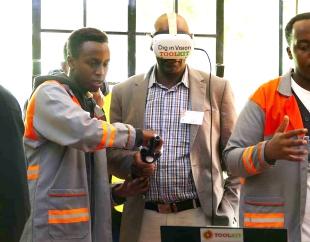
The event was graced by various dignitaries including the German Ambassador to Kenya – Mr. Sebastian Groth, Mr. Timothy Were –the Deputy Director at the State Department of ICT and Innovation, Ms. Jane Mwangi – the Director State Department of Housing, representatives from the French Embassy, Polish Embassy, Norwegian Embassy, Deutsche Gesellschaft für Internationale Zusammenarbeit (GIZ), religious leaders, Swisscontact, Kenya National Qualifications Authority, different private companies and public corporations and local area administration. Don Bosco Tech Africa was represented by the deputy director, Br. John Njuguna.
Ms. Jane Muigai Kamphuis, the director and founder of Toolkit iSkills, expressed in her speech that they look forward to extending this technology to TVET institutions including the Don Bosco TVET centres in Africa. She underscored that in order to offer quality training to young people Toolkit has
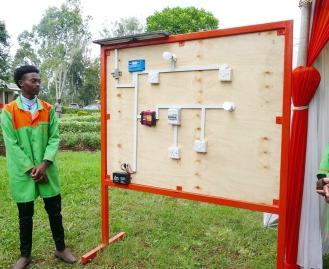 by www.dbtechafrica.org
by www.dbtechafrica.org
invested in the development of its instructors through training of trainers. Accordingly, through this, they produce outstanding and competent graduates ready for the labour market both locally and internationally. “We will raise the flag and Africa will stand on the shoulders of its youth,” concluded Ms. Jane

On his part the German Ambassador to Kenya, Mr Sebastian Groth, said Germany has a deficit of skilled labour in welding and renewable energy hence the Toolkit training is a great opportunity to export
CcHUB is launching an ed-tech accelerator for African startups with $15 million in funding by www.techgistafrica.com
by: Oluwafisayo Dorcas Adeyooye www.builtinafrica.io
The prevalence of
technology has affected society in many positive ways, and education is one sector that has made great leaps. Technology is increasingly transforming how education is delivered, from the way students are taught, to how they learn and retain knowledge
Established in 2017 and based in South Africa, Injini is Africa’s first EdTech dedicated incubator and seed investment program. Injini invests in promising African EdTech entrepreneurs to boost educational outcomes across the continent.
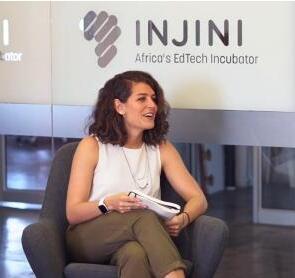
o-Creation Hub (CcHUB), Cthe largest innovation hub in Africa, is creating a $15 million accelerator program that will be known as The Edtech Fellowship Program.
The goal of this program is to back and support 72 startups based in Nigeria and Kenya over the next three years
The accelerator program will help boost the effect of edtech businesses across Africa, according to a statement released by the company. It will also support entrepreneurs who are presenting tech solutions to solve learning innovation in a sector of education rife with several problems
labour to Germany. He congratulated the Toolkit fraternity and accentuated that the German government will continue with its support to develop skills in Kenya and Africa as a whole. The German government is developing an immigration policy that will enhance labour mobility
Don Bosco Tech Africa would like to see the Don Bosco TVET centres advance to this level of technology and that’s why it is working closely with Toolkit iSkills in order to roll out these digital skills to the Don Bosco TVET centres Embracing digital skills and collaborating with like-minded partners will help change the landscape and trajectory of young people in Africa.
The company selects cohorts of Edtech startups from all over Africa to participate in a 5-month incubation journey where they network with experts and mentors in the field and access resources needed to maximize their impact. These cohort companies are also provided with grants and potential follow-on investments for participating in the program.
Asides from the incubation program, Injini hosts meetups and boot camps across the continent, bringing together educators, entrepreneurs, and anyone interested in shaping Africa through EdTech.
By supporting entrepreneurs in leveraging educational technology to unlock Africa’s potential, Injini believes they can drive the continent forward.
The selected startups will receive professional assistance from the accelerator in the areas of product development, government relations, pedagogy and learning science, portfolio management, communication, instructional design, and community building.
The CEO of CcHUB, Bosun Tijani, stated, “We will establish 72 edtech startups during the next three years Since you can be very certain that half of them—or 20–30%—would survive for an additional three–four years, we think this will jump-start the ecosystem and restart it. And that will enable us to determine whether technology can actually benefit African education.
Tijani says that there is also a provision for a follow-on investment of $50 million, towards which an anchor investor has already put $5 million, to support the seed and Series A phases of the firms
After acceptance into the program, the startups would receive an initial $100,000 check from the program.
Visit the website to learn more about the program.
I came to college with almost a decade of experience using mental health services. However, like many other students, I did not have a plan for the transition to campus life. By my sophomore year, things reached a crisis point. I could not function and was on the verge of dropping out of school and losing my financial aid. That is when I was diagnosed with bipolar disorder and connected to disability support and intensive mental health services.
While I was lucky enough to get access to mental health support, I felt completely alone. I was embarrassed about this new diagnosis and the many things in my past that led to it. However, throughout my recovery, I began to identify and learn from others with shared experiences. As a result, I felt less shame and more hope for the future, received emotional support, and learned tools to promote my well-being
As I navigated my own journey, I wondered how many people around me were experiencing similar things. I knew that creating welcoming and supportive spaces, like those I had access to, could help others encountering the difficulties that come with college life while also having a mental health disability – my peers could experience hope and connection and feel less alone
Yet, when I tried to launch a peer program, I was met with many of the concerns that students across the country still report:
How can students be qualified to support one another? Why don’t you just use the support groups the counseling center provides? What happens if a student has a mental health crisis? Will the university be liable if something bad happens?
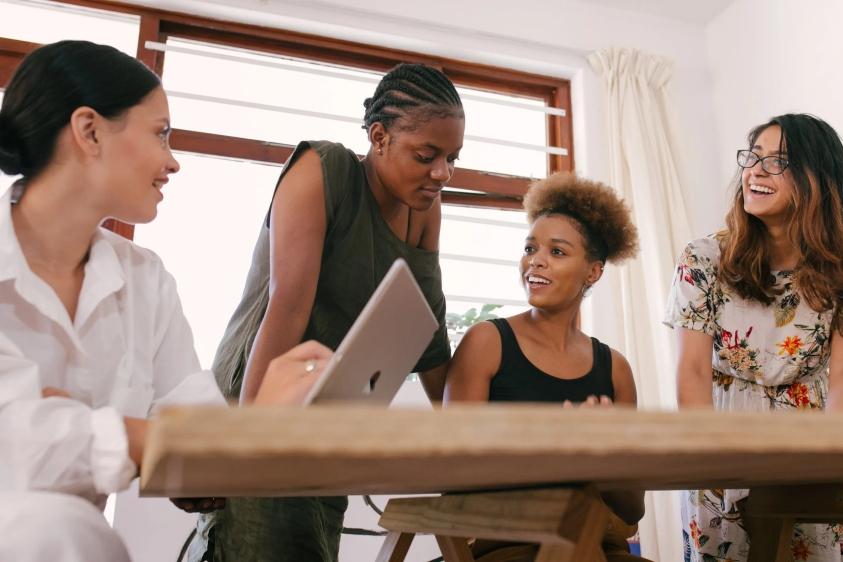 By Kelly Davis, MHA Associate Vice President of Peer and Youth Advocacy
By Kelly Davis, MHA Associate Vice President of Peer and Youth Advocacy
Among our findings, students shared that student-led programs offer more comprehensive approaches. Additionally, students want more training on peer support, crisis response, and student rights – all of which can be supported by numerous resources and the vast expertise present in the peer support community
Students want peer support programs, and much of the campus pushback can be addressed with decades of insight from the peer support community. It’s time to close the gaps between off-campus and on-campus peer support. By working together and sharing knowledge across organizations and movements, we can create a mental health support system that truly meets the needs of all students
I did not have answers to these questions, and my research for campus peer support programs came up short. So, I continued my advocacy on campus and created an informal peer support group that met in quiet spots on campus, and even a student’s apartment.
At the time, I was unaware that there were organizations and individuals who had been leading mental health peer support programs for decades. I would later find out that there is research, technical assistance available for individuals running and launching peer programs, and peer support certification in almost every state
Since I graduated from college, conversations about campus peer support have progressed. Yet, there is still a large gap between what campuses are trying to figure out and the wide range of resources and wisdom available through the peer support movement.
To fill this gap, Mental Health America partnered with the Temple University Collaborative for Community Inclusion and Doors to Wellbeing to explore the experiences of college students in a new report: Peer Support In College Mental Health Initiatives: Learning From The Peer Support Movement.
Cambridge Dictionary defined metamorphosis as a
complete change in character, appearance or condition. When metamorphosis occurs, a person or thing develops and changes into something completely different. School Metamorphosis can be likened to school transformation.This has to do with the development and changes that will transform your school.
The process involved in metamorphosis varies depending on the phase you are in presently. Each phase has a series of changes which can be quite demanding to you as an individual and to the school community. but the end result will be remarkable
I will encourage you to go through these stages so you can emerge as one of the leading schools in your location or state. A butterfly goes through 4 stages in order to be transformed, your school can also go several stages and more than the life cycle of a butterfly or less. Make sure you go through it so you and school can be relevant in this contemporary world.
You will know if you change by the challenges you encounter You will be able to resolve old challenges and move to another one if you are growing. If you keep solving or having the same issues, it could mean that you are still at that same level. Change will reflect in both internal and external features. We should be able to see the changes in your pupils/students, teachers (discipline and achievement) through the system and structure. Growth and change is encompassing, it is not isolated. Development is also glaring as it cannot be hidden.
There are a lot of things you can do, never assume you can't do something. Time is also a factor so, do not fold your hands and cross your legs, you can do some things even without necessarily starting with money. I'm not saying money is not important. Action is key but the right action is the master key.
You need to answer these questions?
What can you do to transform your school?
What should you stop doing in your school?
What input can you add to your school?
What support do you need?
How will you go about it?
Who do you need?
Few tips to metamorphose your school as a school owner
1. Write your vision and stay focus
2. Recruit based on merit and values
3. Lead by example
4. Set a long term improvement plan
5. Communicate the school policy to all
6. Speak to experts and many more!
According to John C. Maxwell, everything rises and falls on the leadership, the change starts with you as a school leader Go transform your school, education and the world at large
Opeyemi Ojo is the host of Today's Insight with Opeyemi Ojo. She is a Personal and School Developme nt Strategist and also a certified Strategic Life Coach. Opeyemi obtained her Post Graduate Diploma in Education (PGDE) from University of Lagos and served as a school administrator for several years. She served briefly as a volunteer with “Fit To Teach” to train teachers at Corona Schools amongst other schools. She is an alumnus of Leading Ladies Business Institute (LLBI); a member of the Teachers Registration Council of Nigeria (TRCN); the Nigeria Institute of (NIM) and the Fishery Society of Nigeria (FISON). Opeyemi Ojo has also authored her first book, Who Deserves My Respect?
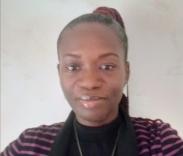
www.improvementcentre.org
Lower Banner
$ 400 $ 600
Half Page $ 600
Half Column $ 800 Full Page $ 1,000
Cover Page Inside
$ 1,000
Back Page
$ 1,000
Back Page Inside
$ 1,500
Advertorial Story & Interview
Education Event
$ 2,500
Special Education Coverage
Cover Page Advertorial
$ 1,500 $ 5,000 $ 5,000
Full Edition Advertorial
Kindly take note that the $ advert rate is convertible to Naira at the *official Dollar/
We grow up picking up or being taught to be strong, to defend our turf and hold our positions physically or in a debate or argument. We are often seen as stronger when we can pull down others’ arguments and strengthen our case. To put it bluntly, we only ‘win’ an argument when we successfully pull down the argument of the other person or the opposition rather than when we win, and they are still standing where they were. In a sense, it is like the zero-sum game, where we only ‘win’ or feel good with ourselves if the other person loses
Because of this way of thinking, we behave in a conversation or a debate, like the more arguments we pile up just like in a scale, the more we think we will win the arguments. Therefore, we often lose the vital ability to listen to each other and to expand our points of view and thinking In a very simple way, we do not learn anything from other people when we are talking or advocating our position, rather we would be digging into our position and entrenching our sense of ‘smartness or foolishness’, but we do not learn anything new
We only learn when we listen to others, when we learn to allow the thinking of others to come into our ‘space’ or give them a chance to thrive in our ecosystem. Without listening, we lose perspective of the other side, of what we do not know or what we could have known. How much knowledge and information we have left on the table because we wanted to push all our points across the table and push out/over the points and views. How
better our lives and worldviews would have been exponentially more, if we did not think we were so smart and so articulate in our thinking and delivery.
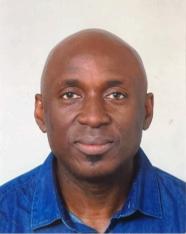
Changing our worldview about how ‘smart’ people think is a core competence or behaviour that everyone should learn as children or relearn as adults. When we can do this successfully, we expand our understanding and perspectives and create more allies and become better than we were coming out of a classroom, a discussion, an engagement, a debate, a meeting, an interaction with a person, a book, or an idea. Sometimes the debate we have is in our heads, indeed how we respond to what we are hearing, reading, or thinking starts internally. When we read a book, we have a choice to introspect or ask ourselves if we are open to listening to or hearing what the writer is trying to convey. Every engagement we have is an opportunity to expand our repertoire of knowledge or to deepen what we think we already know. So, like the letter ‘T’, are you deepening your vertical thinking and staying in one place – you know so much about a few things or are you extending (and slightly deepening) your horizons so you know more and can interact and impact the world with what you know. The bee-like thinking allows us to pollinate the world with what we know or to test what we think we know. Just to be sure, the opposite of bee-like thinking is our tendency to hoard knowledge after the age-old maxim – knowledge is power. I daresay, that we need to update that maxim to shared knowledge is power
When you share, you have a choice to learn and test what you think you know Testing what we think we know helps us deepen the T- horizontals of our thinking and worldview
Being open to other points of views does not and should not mean proposing that we accept all points of views without thinking through. Rather, I am advocating that we are open to the thinking of others and that we test what we think we know as we also listen to what others are saying Just think about it… when you just finished reading a book, left a conversation, an engagement, or a meeting, what truly did you learn that you did not know before? The strength of your answer should tell you the shape of your ‘T’ - whether you are deepening your verticals or extending your horizontals. Be definite in your approach to learning and impacting the world.
Research has shown that opening up our way of thinking or engaging with others does a lot to foster strong relationships and sustain long term results – both in business and personal life.
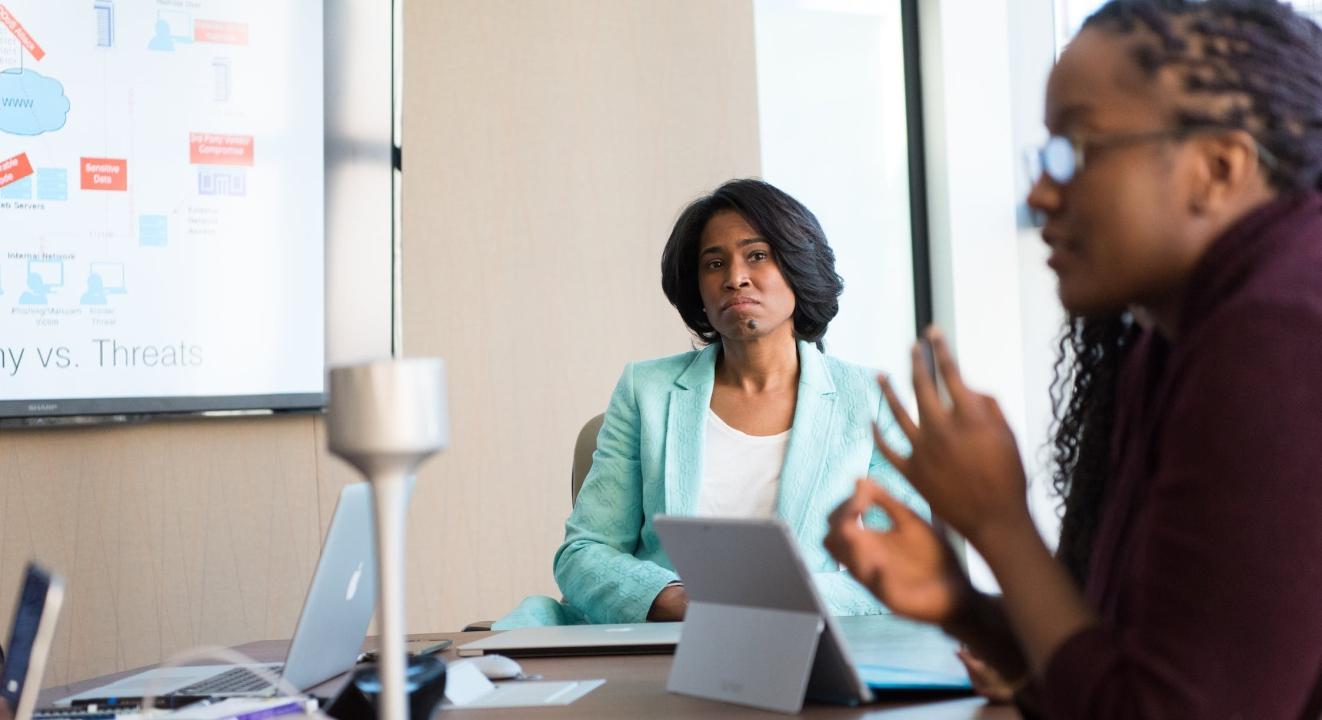
Join
Applications are open for our September 2023, and January 2024 intakes.
Students choose ALU because they want handson real world experience led by some of the world’s most innovative educators. They want a place that does not limit their potential with old rules but believes in their capacity to solve Africa’s largest challenges in new ways. They want their time at a university to lead them to a job or even to launch a company. They want to be part of a global network committed to their success.

Simply put, they want a university that will prepare them to be the leaders who will transform Africa.
Get well-equipped for a job
Be prepared to create your own job and jobs for others
Be part of a learning system that is optimized for the pandemic
Be led by some of the most innovative educators in the world

Learn through hands-on, real-world experiences and amazing peers
Be part of a network for life that helps you secure opportunities
Become part of a thriving pan-African-global network of experts, mentors, partners and investors
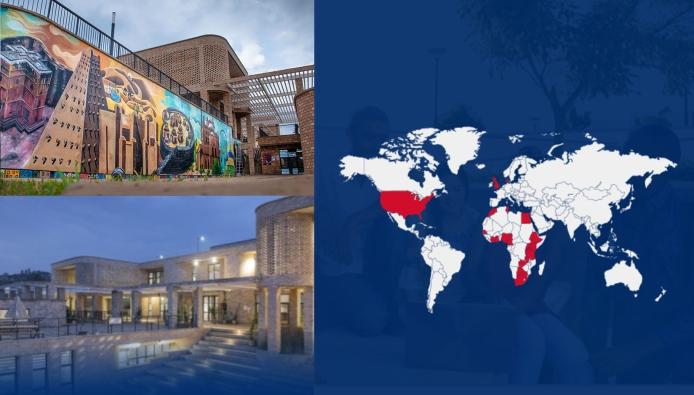
Grants available

Get the education that’s built around the impact you want to make in the world.
the new generation of change makers in Africa.
